2016 Legislative Session
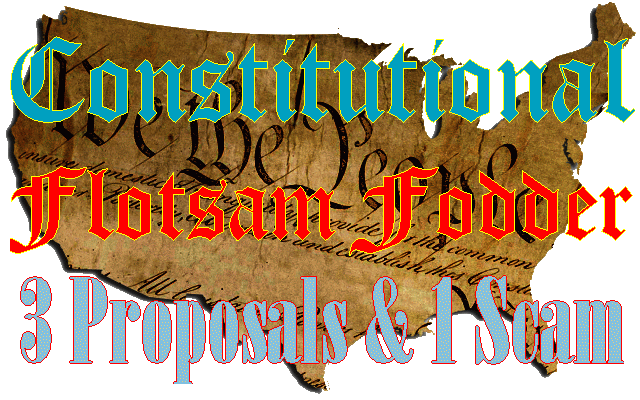
Utilities Sting Florida Electorate

  October 12, 2016 - Given the political fireworks launched during Presidential elections, most voters would rather flip a coin than self-educate about Ballot questions or proposed Constitutional Amendments. As a result, unscrupulous politicians and industrial juggernauts religiously use them as vehicles for realizing outrageous measures that would otherwise wither under marginal scrutiny. October 12, 2016 - Given the political fireworks launched during Presidential elections, most voters would rather flip a coin than self-educate about Ballot questions or proposed Constitutional Amendments. As a result, unscrupulous politicians and industrial juggernauts religiously use them as vehicles for realizing outrageous measures that would otherwise wither under marginal scrutiny.
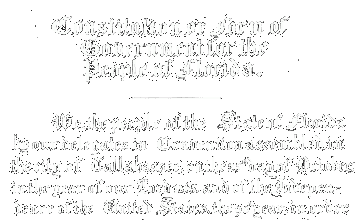 Of the five methodologies available to amend the Florida Constitution, citizen initiative petitions and legislative Joint Resolutions (SJR, HJR) are the most common. When stonewalled by lawmakers in the majority party (who control the legislative spigot), citizens or business interests can place an amendment on the ballot by collecting petition signatures equal in number to 8% of the votes cast in the last Presidential election and sourced from at least one-half of the State�s Congressional Districts. Of the five methodologies available to amend the Florida Constitution, citizen initiative petitions and legislative Joint Resolutions (SJR, HJR) are the most common. When stonewalled by lawmakers in the majority party (who control the legislative spigot), citizens or business interests can place an amendment on the ballot by collecting petition signatures equal in number to 8% of the votes cast in the last Presidential election and sourced from at least one-half of the State�s Congressional Districts.
 To place a proposed Constitutional Amendment on the November 8, 2016 Ballot, a Citizen�s initiative had to petition the signatures of 683,149 registered Florida voters by the February 1, 2016 filing deadline. In contrast with the rigorous eligibility burden mandated for citizens, for lawmakers in the majority party, bagging the 60% approval in both chambers required for a joint resolution is often easier than breathing. To place a proposed Constitutional Amendment on the November 8, 2016 Ballot, a Citizen�s initiative had to petition the signatures of 683,149 registered Florida voters by the February 1, 2016 filing deadline. In contrast with the rigorous eligibility burden mandated for citizens, for lawmakers in the majority party, bagging the 60% approval in both chambers required for a joint resolution is often easier than breathing.
 Although five (5) Proposed Amendments were certified for the ballot, one of them � Amendment 4 - was approved by more than 72% of voters participating in the August 30 Primaries. The proposed amendment was added to the August 30 ballot by the Legislature, ostensibly to avoid voter confusion between Amendment 4 and Amendment 1, which both address solar energy issues. Amendment 4 is extremely useful � while Amendment 1 is a devious attempt to hoodwink voters. Although five (5) Proposed Amendments were certified for the ballot, one of them � Amendment 4 - was approved by more than 72% of voters participating in the August 30 Primaries. The proposed amendment was added to the August 30 ballot by the Legislature, ostensibly to avoid voter confusion between Amendment 4 and Amendment 1, which both address solar energy issues. Amendment 4 is extremely useful � while Amendment 1 is a devious attempt to hoodwink voters.
 Before the approval of Amendment 4 on the August ballot, the Florida Constitution exempted renewable energy source installations on residential properties from ad valorem taxation. Business and commercial properties were not included. Amendment 4 not only exempted solar energy devices from property tax valuation for homes, but for commercial and industrial properties that fall under the tangible personal property tax bracket. The exemptions granted by Amendment 4 would begin in 2018 and continue for 20 years. Good stuff. Before the approval of Amendment 4 on the August ballot, the Florida Constitution exempted renewable energy source installations on residential properties from ad valorem taxation. Business and commercial properties were not included. Amendment 4 not only exempted solar energy devices from property tax valuation for homes, but for commercial and industrial properties that fall under the tangible personal property tax bracket. The exemptions granted by Amendment 4 would begin in 2018 and continue for 20 years. Good stuff.
The other four (4) proposed Constitutional Amendments will appear on the November 8, 2016 general election ballot. The penny sales tax Broward Ballot Question that is also placed on the Broward Ballot was covered in the September Newsletter. For another look, check the Galt Mile website for Commissioner Bruce Roberts September Newsletter commentary. For insight into the three legitimate prospective statewide constitutional amendments and a fourth hop-toad created for the sole purpose of draining your wallet, read on:

Proposed Amendment #1

 | | CONSTITUTIONALIZING BAD LAWS WILL BLOCK SOLAR EXPANSION |
Ballot Title: Rights of Electricity Consumers Regarding Solar Energy Choice
Reference: Amendment #1 would add Section 29 to Article X of the Florida Constitution; Sponsored by Consumers for Smart Solar; Citizen Initiative
Official Ballot Summary: This amendment establishes a right under Florida's constitution for consumers to own or lease solar equipment installed on their property to generate electricity for their own use. State and local governments shall retain their abilities to protect consumer rights and public health, safety and welfare, and to ensure that consumers who do not choose to install solar are not required to subsidize the costs of backup power and electric grid access to those who do.

What you need to know

 Whatever else you do with your ballot - you need to kick this one to the curb. According to the Solar Energy Industries Association, �Florida - the sunshine state - ranks third in the nation for rooftop solar potential, but all the way down at 14th for cumulative solar capacity installed. Florida�s solar policies lag behind many other states in the nation: it has no renewable portfolio standard and does not allow power purchase agreements, two policies that have driven investments in solar in other states.� Whatever else you do with your ballot - you need to kick this one to the curb. According to the Solar Energy Industries Association, �Florida - the sunshine state - ranks third in the nation for rooftop solar potential, but all the way down at 14th for cumulative solar capacity installed. Florida�s solar policies lag behind many other states in the nation: it has no renewable portfolio standard and does not allow power purchase agreements, two policies that have driven investments in solar in other states.�
 It�s no accident that Florida lumbers behind largely overcast states like New Jersey (#4), Massachusetts (#6) and New York (#7) for the amount of solar panels installed in the state as of December 2015. Anti-solar laws crafted by Florida utility lobbyists and their minions in the PSC have throttled solar energy expansion. For example, Florida is one of a handful of states that ban the third-party sale of electricity. Floridians must purchase their power from the utilities that drafted this anti-consumer law. Seeking to ensure their monopoly on the sale of power to Floridians, the utilities sponsored Proposed Amendment #1 to constitutionalize these anathematic laws. Hoping to slow the growth of inexpensive solar power � which will cost them hundreds of $billions � utilities have waged a nationwide campaign to block productive solar laws in every state. It�s no accident that Florida lumbers behind largely overcast states like New Jersey (#4), Massachusetts (#6) and New York (#7) for the amount of solar panels installed in the state as of December 2015. Anti-solar laws crafted by Florida utility lobbyists and their minions in the PSC have throttled solar energy expansion. For example, Florida is one of a handful of states that ban the third-party sale of electricity. Floridians must purchase their power from the utilities that drafted this anti-consumer law. Seeking to ensure their monopoly on the sale of power to Floridians, the utilities sponsored Proposed Amendment #1 to constitutionalize these anathematic laws. Hoping to slow the growth of inexpensive solar power � which will cost them hundreds of $billions � utilities have waged a nationwide campaign to block productive solar laws in every state.
 Unlike the Legislature, where industry lobbyists have been purchasing statutory impairments for decades, slipping them into the Florida Constitution would require a massive flimflam of voters across the state. Since voters naturally crave cheaper power, the industry hires local think-tanks to strategically undermine the spread of solar power by cloaking anti-solar measures in pro-solar rhetoric - especially in states like Arizona, New Mexico, California - and Florida. Unlike the Legislature, where industry lobbyists have been purchasing statutory impairments for decades, slipping them into the Florida Constitution would require a massive flimflam of voters across the state. Since voters naturally crave cheaper power, the industry hires local think-tanks to strategically undermine the spread of solar power by cloaking anti-solar measures in pro-solar rhetoric - especially in states like Arizona, New Mexico, California - and Florida.
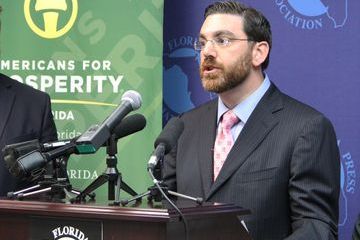 | | JMI V.P. AND POLICY DIRECTOR SAL NUZZO |
On October 18, the Miami Herald reported that vice president and policy director Sal Nuzzo at the James Madison Institute in Tallahassee admitted complicity in crafting a utility industry effort to deceive voters into supporting restrictions on the expansion of solar �by shrouding Amendment 1 as a pro-solar amendment.� While addressing a State Energy/Environment Leadership Summit in Nashville on October 2, Nuzzo called the amendment, �an incredibly savvy maneuver.� As per an audio recording of the event supplied to the Herald/Times, Nuzzo observed how it would cripple pro-solar interests, saying the plan �would completely negate anything they would try to do either legislatively or constitutionally down the road.�
 | | DAVID POMERANTZ |
Upon hearing the tape, executive director DAVID POMERANTZ of the Energy and Policy Institute said the Amendment�s supporters �were very clear about the utilities� plan when they thought the public wasn�t listening: They�re trying to confuse voters into believing their utility-backed ballot initiative is pro-solar. It�s a dirty trick, and Floridians should show them that they�re too smart to let them get away with it.�
 In a March 31 opinion, Florida Supreme Court Justice Barbara Pariente admonished �Let pro-solar energy consumers beware. Masquerading as a pro-solar energy initiative, this proposed constitutional amendment, supported by some of Florida's major investor-owned electric utility companies, actually seeks to constitutionalize the status quo.� After considering arguments by industry lawyers, the High Court Justice characterized the amendment as a �wolf in sheep�s clothing.� In a March 31 opinion, Florida Supreme Court Justice Barbara Pariente admonished �Let pro-solar energy consumers beware. Masquerading as a pro-solar energy initiative, this proposed constitutional amendment, supported by some of Florida's major investor-owned electric utility companies, actually seeks to constitutionalize the status quo.� After considering arguments by industry lawyers, the High Court Justice characterized the amendment as a �wolf in sheep�s clothing.�
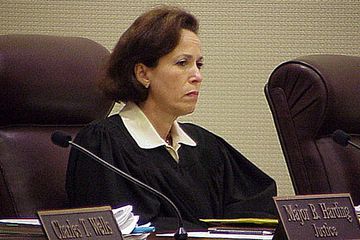 | | FLORIDA SUPREME COURT JUSTICE BARBARA PARIENTE |
Amendment #1 asserts three actions. It opens by claiming to establish �a right under Florida's constitution for consumers to own or lease solar equipment installed on their property to generate electricity for their own use.� First - consumers already have the right to own or lease solar equipment installed on their property. They also have the right to share the solar energy or sell it back to the grid. Decentralized rooftop solar electricity provides net benefits by reducing the stress on the grid during the daytime, cutting expenditures on fossil fuels, and making privately funded clean energy available to all. By adding the words, �to generate electricity for their own use,� the amendment seeks to remove the right to sell or share the cheaper electricity � quashing a strong incentive to install solar while eliminating threatened competition and preserving industry profits. Secondly, in declaring that �State and local governments shall retain their abilities to protect consumer rights and public health, safety and welfare...,� the measure adds nothing, since that is what governments already do.
  Third and last is the payoff � �ensure that consumers who do not choose to install solar are not required to subsidize the costs of backup power and electric grid access to those who do.� In short, there are no subsidies or inequities created by the installation or use of solar power. Consumers who use alternative energy sources like wind or solar also plug into the grid. At night, solar users pay their local utility for power; during the day, they sell it back. This provision would clear the way for the utility industry to charge a fee for using the grid. Implementing a capricious fee will drive up the cost of using solar energy, and impair its proliferation. Of course, if approved, such a fee could be levied on anyone who uses the grid - every energy customer in the state. Third and last is the payoff � �ensure that consumers who do not choose to install solar are not required to subsidize the costs of backup power and electric grid access to those who do.� In short, there are no subsidies or inequities created by the installation or use of solar power. Consumers who use alternative energy sources like wind or solar also plug into the grid. At night, solar users pay their local utility for power; during the day, they sell it back. This provision would clear the way for the utility industry to charge a fee for using the grid. Implementing a capricious fee will drive up the cost of using solar energy, and impair its proliferation. Of course, if approved, such a fee could be levied on anyone who uses the grid - every energy customer in the state.
Although virtually every environmental agency, conservation organization, energy watchdog and consumer advocate strongly opposes this utility-backed Amendment, along with State lawmakers, Mayors, City Commissioners, and local Chambers of Commerce, it may pass because voters have been hoodwinked into mistakenly believing that it promotes solar energy. Needless to say, Sergeant Bilko would be proud.

Proposed Amendment #2

 Ballot Title: Use of Marijuana for Debilitating Medical Conditions Ballot Title: Use of Marijuana for Debilitating Medical Conditions
Reference: Amendment #2 would add a Section 29 to Article X of the Florida Constitution; Sponsored primarily by Yes on 2 (AKA People United for Medical Marijuana); Citizen Initiative
Official Ballot Summary: Allows medical use of marijuana for individuals with debilitating medical conditions as determined by a licensed Florida physician. Allows caregivers to assist patients� medical use of marijuana. The Department of Health shall register and regulate centers that produce and distribute marijuana for medical purposes and shall issue identification cards to patients and caregivers. Applies only to Florida law. Does not immunize violations of federal law or any non-medical use, possession or production of marijuana.

What you need to know

  On January 24, 2014, when a petition supporting proposed constitutional amendment #2 exceeded the 683,149 voter signatures required for ballot placement, the ballot language was challenged by the Governor and Republican Legislative leaders. Three days later, on January 27, 2014, the Florida Supreme Court issued a divided, 4-3 opinion approving language used in the Amendment�s ballot title and summary. On January 24, 2014, when a petition supporting proposed constitutional amendment #2 exceeded the 683,149 voter signatures required for ballot placement, the ballot language was challenged by the Governor and Republican Legislative leaders. Three days later, on January 27, 2014, the Florida Supreme Court issued a divided, 4-3 opinion approving language used in the Amendment�s ballot title and summary.
 The Ballot Summary clarified its authorizing �the medical use of marijuana for individuals with debilitating diseases as determined by a licensed Florida physician.� The language differed slightly from that used in the Amendment�s actual text, in which �Debilitating Medical Condition� was defined as cancer, glaucoma, HIV/AIDS, hepatitis C or �other conditions for which a physician believes that the medical use of marijuana would likely outweigh the potential health risks for a patient.� The Ballot Summary clarified its authorizing �the medical use of marijuana for individuals with debilitating diseases as determined by a licensed Florida physician.� The language differed slightly from that used in the Amendment�s actual text, in which �Debilitating Medical Condition� was defined as cancer, glaucoma, HIV/AIDS, hepatitis C or �other conditions for which a physician believes that the medical use of marijuana would likely outweigh the potential health risks for a patient.�
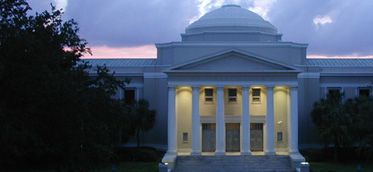 | | FLORIDA SUPREME COURT |
To quash the amendment, Governor Rick Scott sent Florida Attorney General Pam Bondi to spearhead a legal team which insisted that using the term �diseases� instead of �conditions� in the ballot summary would confound the average voter. Disparaging the summary�s failure to sufficiently detail possible Federal repercussions, dissenting Justices Charles Canady, Ricky Polston and Jorge Labarga argued that the ballot title and summary inadequately specify the conditions required for physician approval, and �obscure the breadth of medical issues that would qualify for medical marijuana.� The Majority disagreed, stating �We conclude that the use of �diseases� instead of �conditions� in the ballot summary will not reasonably mislead the voters.� The measure failed, receiving 58% voter approval instead of the 60% required for passage.
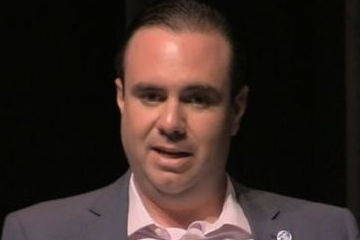 | | UNITED FOR CARE - BEN POLLARA |
Key proponent and largest donor Attorney John Morgan teamed with initiative sponsor United for Care to rehabilitate any confusing language and close loopholes that alienated opponents. United for Care campaign manager Ben Pollara explained, �We've changed some things based on perception and what our opponents and the Florida Supreme Court said.� Since 2014, the Legislature has legalized some strains of marijuana for patients with seizures or severe and persistent muscle spasms. Later, lawmakers legalized full-scale medical marijuana for the terminally ill. By the February 1, 2016 deadline, the secretary of state verified the collection of 716,270 signatures (683,149 were required) and certified the proposed amendment for the ballot.
 The revised 2016 proposal clarifies requirements for parental consent when prescribed for minors, further defines what is meant by �debilitating� illnesses that qualify for marijuana as a treatment option, specifying glaucoma, cancer and chemotherapy, multiple sclerosis, HIV/AIDS, epilepsy, amyotrophic lateral sclerosis (ALS), Crohn's disease, post-traumatic stress disorder (PTSD) and Parkinson's disease. It adds that doctors who are negligent in prescribing marijuana would be subject to malpractice claims and limits how many patients a caregiver can treat with marijuana. Also, the Florida Department of Health will issue ID cards to patients and caregivers. Unlike 2014, both Scott and Attorney General Pam Bondi have remained mute. The revised 2016 proposal clarifies requirements for parental consent when prescribed for minors, further defines what is meant by �debilitating� illnesses that qualify for marijuana as a treatment option, specifying glaucoma, cancer and chemotherapy, multiple sclerosis, HIV/AIDS, epilepsy, amyotrophic lateral sclerosis (ALS), Crohn's disease, post-traumatic stress disorder (PTSD) and Parkinson's disease. It adds that doctors who are negligent in prescribing marijuana would be subject to malpractice claims and limits how many patients a caregiver can treat with marijuana. Also, the Florida Department of Health will issue ID cards to patients and caregivers. Unlike 2014, both Scott and Attorney General Pam Bondi have remained mute.
 Producing videos comparing the measure to a failed California experiment and predicting the creation of 2000 marijuana shops statewide, staunch opponent �Drug Free Florida� (AKA Vote No on 2) once again resorted to specious claims about the measure�s impact � seemingly sourced from cult film �Reefer Madness� � intimating how using marijuana will transform seriously ill medical patients into rabid junkies and bright-eyed preschoolers into pot candy fiends. Producing videos comparing the measure to a failed California experiment and predicting the creation of 2000 marijuana shops statewide, staunch opponent �Drug Free Florida� (AKA Vote No on 2) once again resorted to specious claims about the measure�s impact � seemingly sourced from cult film �Reefer Madness� � intimating how using marijuana will transform seriously ill medical patients into rabid junkies and bright-eyed preschoolers into pot candy fiends.
 The bogus indictments had been systematically debunked by physicians and medical researchers. In fact, since medical marijuana is an alternative therapy to the heavily addictive opioids that are currently prescribed for debilitating diseases (i.e. Oxycodone, Oxycontin, Percocet, etc.), the exact opposite is true. Among the safest known therapeutically active substances, no one ever died from an overdose of marijuana. The bogus indictments had been systematically debunked by physicians and medical researchers. In fact, since medical marijuana is an alternative therapy to the heavily addictive opioids that are currently prescribed for debilitating diseases (i.e. Oxycodone, Oxycontin, Percocet, etc.), the exact opposite is true. Among the safest known therapeutically active substances, no one ever died from an overdose of marijuana.
 Marijuana provides relief from nausea and appetite loss for cancer patients undergoing chemotherapy, AIDs victims ingesting anti-AIDs medications as well as patients undergoing treatments for hepatitis C. By reducing intraocular (within the eye) pressure, marijuana alleviates the pain and slows � and sometimes stops � damage to the eyes from Glaucoma (the leading cause of blindness in the United States). Marijuana can limit the muscle pain and spasticity as well as relieve tremors and unsteadiness of gait in victims of multiple sclerosis (the leading cause of neurological disability among young and middle-aged adults in the United States). Marijuana can prevent seizures in some patients suffering from epilepsy. Marijuana can alleviate chronic, often debilitating pain caused by myriad disorders. Since 2007, three published clinical trials concluded that marijuana effectively relieves neuropathic pain. Marijuana provides relief from nausea and appetite loss for cancer patients undergoing chemotherapy, AIDs victims ingesting anti-AIDs medications as well as patients undergoing treatments for hepatitis C. By reducing intraocular (within the eye) pressure, marijuana alleviates the pain and slows � and sometimes stops � damage to the eyes from Glaucoma (the leading cause of blindness in the United States). Marijuana can limit the muscle pain and spasticity as well as relieve tremors and unsteadiness of gait in victims of multiple sclerosis (the leading cause of neurological disability among young and middle-aged adults in the United States). Marijuana can prevent seizures in some patients suffering from epilepsy. Marijuana can alleviate chronic, often debilitating pain caused by myriad disorders. Since 2007, three published clinical trials concluded that marijuana effectively relieves neuropathic pain.
 A few opponents offered an objection that actually had merit, arguing that legalizing marijuana is a function more appropriate to the state Legislature, as a Statute can be readily improved if necessitated by actual experience, while comparable adaptations to the constitution are far more difficult. Supported by most medical associations throughout the U.S. and Florida, the America Medical Association stated, �Effective patient care requires the free and unfettered exchange of information on treatment alternatives and that discussion of these alternatives between physicians and patients should not subject either party to criminal sanctions.� Voters can make Florida the 26th State � along with the District of Columbia - that allows physicians to treat seriously ill patients with Medical Marijuana. A few opponents offered an objection that actually had merit, arguing that legalizing marijuana is a function more appropriate to the state Legislature, as a Statute can be readily improved if necessitated by actual experience, while comparable adaptations to the constitution are far more difficult. Supported by most medical associations throughout the U.S. and Florida, the America Medical Association stated, �Effective patient care requires the free and unfettered exchange of information on treatment alternatives and that discussion of these alternatives between physicians and patients should not subject either party to criminal sanctions.� Voters can make Florida the 26th State � along with the District of Columbia - that allows physicians to treat seriously ill patients with Medical Marijuana.

Proposed Amendment #3

 | | TAX EXEMPTION FOR PERMANENTLY DISABLED FIRST RESPONDERS |
Ballot Title: TAX EXEMPTION FOR TOTALLY AND PERMANENTLY DISABLED FIRST RESPONDERS
Reference: Amendment #3 would amend Section 6(f) of Article VII and add a new section to Article XII of the Florida Constitution; Referred by the Florida Legislature.
Official Ballot Summary: Proposing an amendment to the State Constitution to authorize a first responder, who is totally and permanently disabled as a result of injuries sustained in the line of duty, to receive relief from ad valorem taxes assessed on homestead property, if authorized by general law. If approved by voters, the amendment takes effect January 1, 2017.

What you need to know

 This amendment recognizes the sacrifices regularly made by our first responders in the line of duty while protecting our liberties and way of life. The State of Florida and its citizens are, by the very nature of the services performed by these men and women, forever in their debt. Our state can collectively express appreciation by approving Amendment 3, offering these permanently afflicted heroes property tax relief. This amendment recognizes the sacrifices regularly made by our first responders in the line of duty while protecting our liberties and way of life. The State of Florida and its citizens are, by the very nature of the services performed by these men and women, forever in their debt. Our state can collectively express appreciation by approving Amendment 3, offering these permanently afflicted heroes property tax relief.
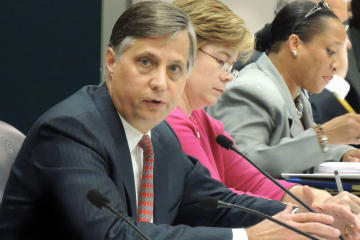 | | REPRESENTATIVE LARRY METZ |
Florida�s Constitution already grants a property-tax exemption to the spouses of first responders who die in the line of duty. Amendment 3 authorizes the Legislature to extend that exemption to first responders who are �totally and permanently disabled� from injuries received in the line of duty. Existing law defines first responders as police and correctional officers, firefighters, emergency medical technicians and paramedics. State officials did not estimate how much the new exemption might cost local governments from lost property tax revenue.
Amendment #3 was introduced by Representative Larry Metz in the Florida House of Representatives on December 18, 2015. House Joint Resolution 1009 passed the House unanimously on February 11, 2016, and the Senate unanimously on March 9, 2016. If approved by voters, the Legislature must still decide whether the exemption should provide full or partial relief from property taxes and approve the measure to become law (effective on Jan. 1, 2017). This should be a cakewalk.

Proposed Amendment #5

 Ballot Title: HOMESTEAD TAX EXEMPTION FOR CERTAIN SENIOR, LOW-INCOME, LONG-TERM RESIDENTS; DETERMINATION OF JUST VALUE Ballot Title: HOMESTEAD TAX EXEMPTION FOR CERTAIN SENIOR, LOW-INCOME, LONG-TERM RESIDENTS; DETERMINATION OF JUST VALUE
Reference: Amendment #5 would amend Sections 6 of Article VII of the Florida Constitution; Referred by the Florida Legislature.
Official Ballot Summary: Proposing an amendment to the State Constitution to revise the homestead tax exemption that may be granted by counties or municipalities for property with just value less than $250,000 owned by certain senior, low-income, long-term residents to specify that just value is determined in the first tax year the owner applies and is eligible for the exemption. The amendment takes effect January 1, 2017, and applies retroactively to exemptions granted before January 1, 2017

What you need to know

 In 2012, voters approved a Constitutional Amendment allowing cities and counties to grant a full property-tax exemption for Floridians 65 and older living in a home with a just (market) value of less than $250,000 for at least 25 years, with an annual household income of $28,448 in 2015 (income limits are adjusted annually for inflation). The exemptions were also made available to permanently disabled veterans aged 65 or older and surviving spouses of veterans or first responders who died in the line of duty. In 2012, voters approved a Constitutional Amendment allowing cities and counties to grant a full property-tax exemption for Floridians 65 and older living in a home with a just (market) value of less than $250,000 for at least 25 years, with an annual household income of $28,448 in 2015 (income limits are adjusted annually for inflation). The exemptions were also made available to permanently disabled veterans aged 65 or older and surviving spouses of veterans or first responders who died in the line of duty.
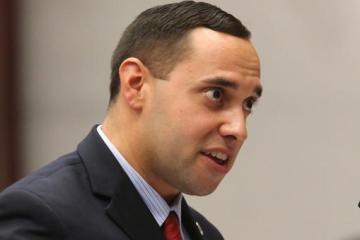 | | STATEHOUSE REPRESENTATIVE BRYAN AVILA |
However, if the value of the home increases above $250,000, eligibility would be lost, and the taxes would have to be paid as assessed � a catastrophic impact for a senior on a fixed income. By clarifying that the home value is set when residents first apply, Proposed Amendment #5 locks in the exemption permanently once a senior qualifies, correcting the troubling pitfall.
Amendment 5 was introduced by Representative Bryan Avila in the Florida House of Representatives on October 1, 2015. House Joint Resolution 275 passed the House unanimously on February 11, 2016, and the Senate unanimously on March 9, 2016 (effective January 1, 2017). Since the amendment is retroactive to 2013, a senior who qualified for the exemption in 2013, but lost it, would regain the exemption. Like Amendment #3, it�s a no-brainer.

Click To Top of Page
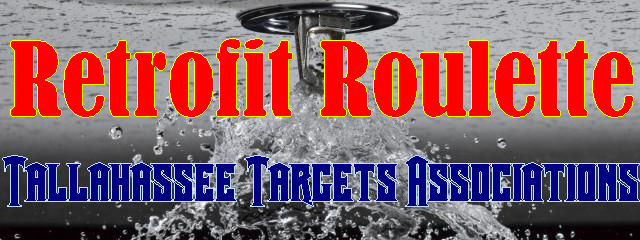

 August 3, 2016 - In the past few months, Florida community association homeowners have been perplexed by an unexpected regulatory bear trap. A requirement to retrofit condominiums and cooperatives with a budget-busting automatic sprinkler system, which has plagued high-rise associations for fourteen years, has suddenly evolved into a mandate for every association in the State, regardless of size. August 3, 2016 - In the past few months, Florida community association homeowners have been perplexed by an unexpected regulatory bear trap. A requirement to retrofit condominiums and cooperatives with a budget-busting automatic sprinkler system, which has plagued high-rise associations for fourteen years, has suddenly evolved into a mandate for every association in the State, regardless of size.
 | | DBPR PRESS SECRETARY TRAVIS KEELS |
Travis Keels, deputy director of communications for the Florida Department of Business and Professional Regulation (DBPR), recently announced �Generally speaking, the fire sprinkler requirement applies to all residential condominiums.� Six years after the 2010 Florida legislature amended Chapters 718 and 719, F.S. (the Condominium and Cooperative Acts), empowering cash-strapped unit owners in high-rise associations to forego a sprinkler retrofit by a majority vote, DBPR suddenly awoke to another 2010 statutory tweak � removal of a provision that limited the sprinkler mandate to high-rise buildings.
 The Office of Florida Fire Marshal disagrees with the DBPR�s knee-jerk policy. However, since the DBPR�s Division of Florida Condominiums, Timeshares, and Mobile Homes is charged with enforcing the common interest community statutes, tens of thousands of Florida associations peppered with fixed-income retirees are scrambling to determine if they must vote to forego a sprinkler retrofit before the December 31, 2016 opt-out deadline. The Office of Florida Fire Marshal disagrees with the DBPR�s knee-jerk policy. However, since the DBPR�s Division of Florida Condominiums, Timeshares, and Mobile Homes is charged with enforcing the common interest community statutes, tens of thousands of Florida associations peppered with fixed-income retirees are scrambling to determine if they must vote to forego a sprinkler retrofit before the December 31, 2016 opt-out deadline.
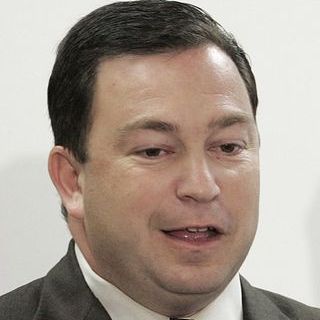 | | BROWARD SENATOR JEREMY RING |
Hoping to quell the growing confusion, association advocate Donna Berger recruited assistance from Broward Senator Jeremy Ring, Senate sponsor of the 2010 legislation. In a July 28, 2016 letter to DBPR Director Kevin Stansfield, Ring clarified that his removal of the reference to high-rise buildings wasn�t meant to expand the retrofit requirement to every Florida association, explaining, �It was not my intent, nor the intent of the Legislature, to obliquely impose a substantial economic burden on a large segment of condominium owners.�
 | | ASSOCIATION ADVOCATE DONNA BERGER |
Questioning why DBPR waited six years before using a newspaper article to reveal their enigmatic interpretation �a mere 5 months before the opt out deadline expires,� Ring requested �that the Division issue a press release consistent with the intent of the Legislature.� In other words � back off. The Florida Bar has also notified DBPR that the agency is about to enforce a law that doesn�t exist. Fortunately, Galt Mile associations that already completed the opt-out process won�t be affected. Unfortunately, we have another problem.
Stalking a $Billion Payday

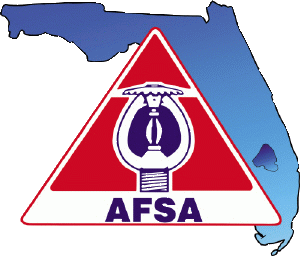 | | AMERICAN FIRE SPRINKLER ASSN |
In 2002, the Florida Legislature quietly passed a clandestine bill requiring every Florida Association housed in a structure 75 feet above grade to install a Full Sprinkler System or, alternatively, establish an acceptable Engineered Life Safety System (ELSS). An Engineered Life Safety System is a fire protection plan customized by a registered professional fire safety engineer that variably combines partial sprinkler protection, smoke detection, smoke control, compartmentation, and other approved life safety systems.
 Scrutiny of the new law revealed it to be a $multi-billion payday for certain vested interests instead of effective fire protection. Drafted by the American Fire Sprinkler Association (AFSA) and the National Fire Sprinkler Association (NFSA) with input from the Plumbers and Pipefitters Union, glaringly absent from this �midnight legislation� were any studies or research clarifying its impact on community associations and their unit owners. Scrutiny of the new law revealed it to be a $multi-billion payday for certain vested interests instead of effective fire protection. Drafted by the American Fire Sprinkler Association (AFSA) and the National Fire Sprinkler Association (NFSA) with input from the Plumbers and Pipefitters Union, glaringly absent from this �midnight legislation� were any studies or research clarifying its impact on community associations and their unit owners.
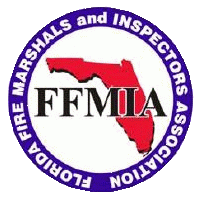
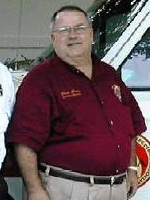 | CHUCK AKERS - FORMER FFMIA
& AFSA EXECUTIVE DIRECTOR |
To infuse a bill designed by industry lobbyists with credibility, certain representatives from the Florida Fire Marshals and Inspectors Association (FFMIA) (FFMIA) called on legislators to �pass this bill as a testament to our heroic firefighters.� Instead of presenting authoritative documentation demonstrating that a variety of different fire safety solutions should be tailored to a structure�s material composition; size; occupancy and use; structural elements; proximity to the fire station; the number and type of egresses, adjacent structures and existing fire safety features (as recommended by Fire Safety Engineers), the impressively uniformed lobbyists convinced key lawmakers that sprinkler retrofits were a one-size-fits-all fire safety panacea for every high-rise condominium.
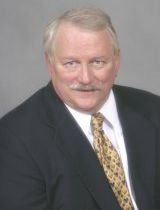 | FFMIA's & NFSA's
BUDDY DEWAR |
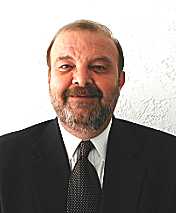 | THE LATE STEVEN RANDALL
FORMER FFMIA PRESIDENT &
NFSA SOUTH REG. DIRECTOR |
The Fire Marshals who lobbied the lawmakers weren�t motivated by altruism and public spirit. Those who directed this strategy had been pulling private sector paychecks for years - and were financially vested in the outcome of this legislation. Chuck Akers, the former Executive Director of the Florida Fire Marshals and Inspectors Association was also the Executive Director of the American Fire Sprinkler Association, an industry trade group responsible for boosting sprinkler sales. Other high-ranking officials in the Fire Marshals union were employed by the National Fire Sprinkler Association, another nationwide sprinkler trade organization behind the original legislation. An FFMIA past President, the late Steven Randall, was also the South Central Regional Manager of the National Fire Sprinkler Association (locally AKA Florida Fire Sprinkler Association) until he retired on July 16, 2009. FFMIA lifetime member Buddy Dewar is the National Fire Sprinkler Association�s Vice President of Regional Operations, and the Florida Fire Sprinkler Association�s Lobbyist and Legislative Liaison. In a nutshell, they make a bundle selling sprinklers.
Retrofit Relief: Opting Out of a Bad Law

 | FORMER REPRESENTATIVE
CONNIE MACK IV |
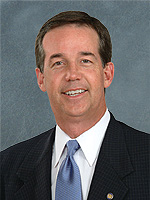 | FL CFO & FORMER SENATOR
JEFFREY ATWATER |
Following a State-wide outcry against the suspect expenditure, in 2003, the Galt Mile Community Association contacted former District 91 Statehouse Representative Connie Mack IV and sophomore Senator Jeffrey Atwater, requesting legislative relief. The original legislation was subsequently modified to allow condo owners to �Opt Out� of retrofitting their associations with either a full automatic sprinkler system or an Engineered Life Safety System �by the affirmative vote of two-thirds of all voting interests�. The opt-out provision was added to Mack�s House Bill 165 and Atwater�s Senate Bill 592, co-filed with former Hollywood Senator Steven Geller over the virulent objections of lobbyists for the Plumbers and Pipefitters Union and the Fire Sprinkler Associations.
 As a concession to the powerful sprinkler lobby, the legislation still required sprinkler retrofits in the association�s common areas, including any enclosed hallway, corridor, lobby, stairwell, or entryway. Sprinkler lobbyists successfully preserved the most important aspect of their corporate clients� agenda, the $billion windfall sale of sprinklers, standpipes, etc. - and the costly connective plumbing. The sprinkler retrofits were mandated by the end of 2014. As a concession to the powerful sprinkler lobby, the legislation still required sprinkler retrofits in the association�s common areas, including any enclosed hallway, corridor, lobby, stairwell, or entryway. Sprinkler lobbyists successfully preserved the most important aspect of their corporate clients� agenda, the $billion windfall sale of sprinklers, standpipes, etc. - and the costly connective plumbing. The sprinkler retrofits were mandated by the end of 2014.
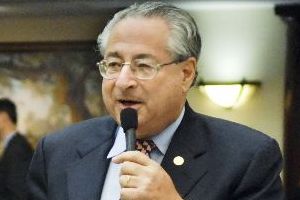 | | REPRESENTATIVE CARL DOMINO |
In 2006, House Bill 391 by Representative Carl Domino aspired to extend the sprinkler retrofit deadline for high rise projects from 2014 to 2025. The extra decade would have afforded unit owners an opportunity to recover from the 2004 and 2005 hurricane repair assessments, mega-deductibles and huge windstorm insurance increases that often required long and/or short term financing. Unit owners in these leveraged associations sought to first amortize their bloated debt service before paying an enormous retrofit assessment.
 | FORMER GOVERNOR JEB
BUSH VETOES HB 391 |
HB 391 was unanimously approved in the House and Senate. Having failed to convince lawmakers that investing scarce association resources in limited sprinklers would yield a more productive safety benefit than a comparable investment in hurricane protection, retrofit lobbyists turned up the political pressure on lame duck Governor Jeb Bush, who vetoed the bill.
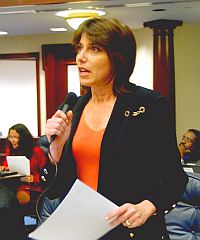 | | REP. ELLYN BOGDANOFF FILES HB 419 |
Responding to persistent entreaties by angry homeowners in tens of thousands of Florida community associations, including her Galt Mile constituents, on January 16, 2009, former Statehouse Representative Ellyn Bogdanoff filed House Bill 419. Its sister bill, Senate Bill 714 filed by Senator Dennis Jones, was ultimately substituted for HB 419 as the session wound down. Filed to correct a host of poorly drafted, contradictory or unworkable association regulations governing insurance, board elections, Timeshare Condominiums and back-up generators for elevators, this association �glitch� bill would also postpone the multi $million fire sprinkler retrofit from 2014 to 2025 - similar to the bill vetoed in 2006. On April 27, 2009, SB 714 passed a vote in the Senate by 38 Yeas vs. 0 Nays. On April 29th, the bill passed a House vote by 114 Yeas vs. 2 Nays.
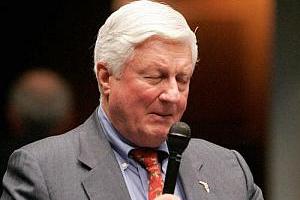 | | SENATOR DENNIS L. JONES |
To thwart a delay to their windfall, Sprinkler Association lobbyists threw a carrot to Governor Crist�s handlers, who coveted a juicy campaign contribution and an endorsement by the Fire Marshals to jump-start his ill-fated run for the US Senate seat vacated by Mel Martinez. Bartering the welfare of cash-strapped association homeowners for political capital, Crist vetoed the bill.
 The Fire Sprinkler Associations concede that retrofit costs can be enormous. A DBPR study also affirmed that costs can range to $8,633 / unit. Retrofit bids solicited in 2008 by associations with 200 � 300 units ranged from $1.4 million to $4.76 million, depending primarily on whether demolished floors, walls and ceilings were seamlessly restored or emulated installations in public housing, with hundreds of yards of exposed steel, copper and CPVC permeating the structure. The Fire Sprinkler Associations concede that retrofit costs can be enormous. A DBPR study also affirmed that costs can range to $8,633 / unit. Retrofit bids solicited in 2008 by associations with 200 � 300 units ranged from $1.4 million to $4.76 million, depending primarily on whether demolished floors, walls and ceilings were seamlessly restored or emulated installations in public housing, with hundreds of yards of exposed steel, copper and CPVC permeating the structure.
Bogdanoff vs. Sprinkler Lobby

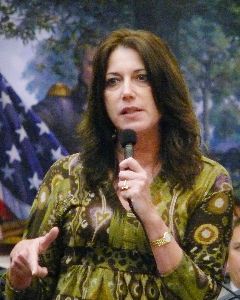 | | REP. ELLYN BOGDANOFF FILES HB 561 |
On January 4, 2010, Representative Bogdanoff filed House Bill 561 (HB 561), which not only revived the insurance fixes and other glitch repairs napalmed by the Governor, it improved on the fire sprinkler retrofit relief proposed in the previous year�s vetoed Senate Bill 714. Instead of postponing the retrofit deadline, HB 561 would amend the opt-out provisions enacted in 2003, enabling associations to forego a sprinkler retrofit. Bogdanoff�s HB 561 and Senate Bill 1222 (SB 1222) � a companion bill filed in the other chamber by Broward Senator Jeremy Ring � were later merged into Senator Mike Fasano�s Senate Bill 1196 (SB 1196).
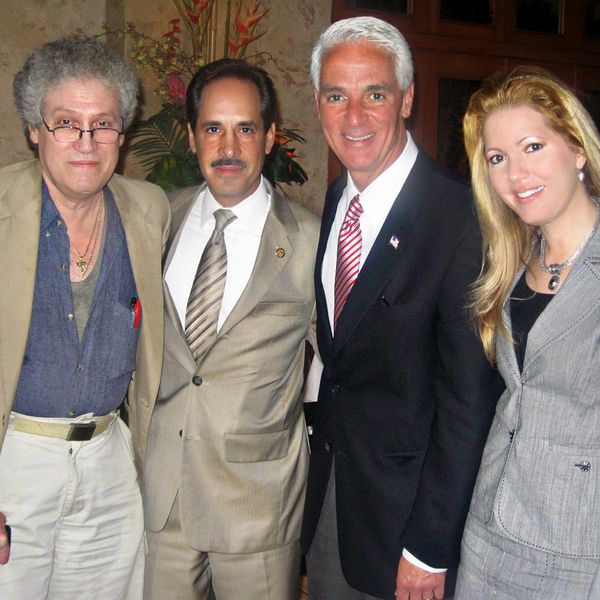 | ERIC BERKOWITZ, PIO IERACI, GOV CRIST & DONNA BERGER
GOVERNOR REFUTES BOGUS 'INTENT TO VETO' REPORT |
The bill eliminated the 2003 exemption of common areas from an opt-out vote, reduced the percentage of voting interests required to approve an opt-out from two-thirds to a simple majority, and extended the retrofit deadline from 2014 to 2019. Additionally, by December 31, 2016, associations that lacked a fire sprinkler system and hadn�t voted to forego a sprinkler retrofit must initiate a building permit to install a sprinkler system by December 31, 2019.
 In vetting committees, Association Attorneys Donna Berger and Yeline Goin explained that when every other state incorporated the NFPA life safety code provisions into State law, they exempted existing structures from retrofit compliance. Berger testified, �Florida is the only State that didn�t grandfather compliance for existing high rise buildings when the statute was implemented.� When sprinkler lobbyists echoed a litany of �towering Inferno� style anecdotal horror stories in both chambers, Representative Bogdanoff rebutted �In 30 years, not one injury resulted from an association�s failure to perform a sprinkler retrofit.� In vetting committees, Association Attorneys Donna Berger and Yeline Goin explained that when every other state incorporated the NFPA life safety code provisions into State law, they exempted existing structures from retrofit compliance. Berger testified, �Florida is the only State that didn�t grandfather compliance for existing high rise buildings when the statute was implemented.� When sprinkler lobbyists echoed a litany of �towering Inferno� style anecdotal horror stories in both chambers, Representative Bogdanoff rebutted �In 30 years, not one injury resulted from an association�s failure to perform a sprinkler retrofit.�
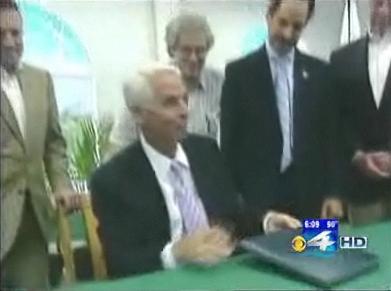 | | GOVERNOR SIGNS OMNIBUS ASSOCIATION BILL |
 On April 16, the Senate approved the bill by a vote of 38 Yeas vs. 0 Nays. On April 28th, the bill passed a vote in the House by 107 Yeas vs. 4 Nays. On June 1, 2010, Crist signed the legislation into law at the Beach Community Center. Over the next few years, thousands of Florida associations voted to opt-out of the sprinkler retrofit, as their unit owners breathed a deep sigh of relief. On April 16, the Senate approved the bill by a vote of 38 Yeas vs. 0 Nays. On April 28th, the bill passed a vote in the House by 107 Yeas vs. 4 Nays. On June 1, 2010, Crist signed the legislation into law at the Beach Community Center. Over the next few years, thousands of Florida associations voted to opt-out of the sprinkler retrofit, as their unit owners breathed a deep sigh of relief.
 The deep-pocketed Sprinkler Associations, whose membership includes corporate juggernauts Tyco and Allied Signal-Honeywell, had successfully kept their $multi-billion self-styled stimulus package alive for eight years and hoodwinked two Governors to vetoing relief bills that were overwhelmingly passed by the legislature. Former Governor Charlie Crist admitted to having mistakenly believed lobbyist assurances that insurance savings would offset installation costs. A DBPR insurance study ordered by the Governor in his veto message later revealed the claim as without merit. The deep-pocketed Sprinkler Associations, whose membership includes corporate juggernauts Tyco and Allied Signal-Honeywell, had successfully kept their $multi-billion self-styled stimulus package alive for eight years and hoodwinked two Governors to vetoing relief bills that were overwhelmingly passed by the legislature. Former Governor Charlie Crist admitted to having mistakenly believed lobbyist assurances that insurance savings would offset installation costs. A DBPR insurance study ordered by the Governor in his veto message later revealed the claim as without merit.
Circumventing a Statute

  Make no mistake; sprinkler lobbyists know how to play political hardball. They also had no intention of leaving $billions in projected revenues on the table. After biding their time for six years, the Sprinkler Associations devised a plan to circumvent the statutory relief. Once the 2016 legislative session ended on March 11, 2016, a high-ranking official in the Fire Marshals union put the plan in motion. Make no mistake; sprinkler lobbyists know how to play political hardball. They also had no intention of leaving $billions in projected revenues on the table. After biding their time for six years, the Sprinkler Associations devised a plan to circumvent the statutory relief. Once the 2016 legislative session ended on March 11, 2016, a high-ranking official in the Fire Marshals union put the plan in motion.
 | | BOCA RATON FIRE MARSHAL DAVID WOODSIDE |
On March 17, 2016, Boca Fire Marshal David Woodside � current President of the Florida Fire Marshals and Inspectors Association � petitioned the Florida Office of State Fire Marshal for a response to 3 questions about how high-rise buildings are affected by the Florida Fire Prevention Code (FFPC). As per state law, the responses comprise an official opinion, also known as a Declaratory Statement.
 To enable better understanding of Woodside�s questions - and the subsequent responses � NFPA 1, NFPA 101 and FFPC code provisions that are commonly characterized by long strings of numbers and letters (i.e. FFPC/NFPA 101 section 31.3.5.11.3 or FFPC 101:31.3.5.11.1) are instead expressed in plain English. To enable better understanding of Woodside�s questions - and the subsequent responses � NFPA 1, NFPA 101 and FFPC code provisions that are commonly characterized by long strings of numbers and letters (i.e. FFPC/NFPA 101 section 31.3.5.11.3 or FFPC 101:31.3.5.11.1) are instead expressed in plain English.
As shown below, four provisions in the Florida Fire Prevention Code (Chapter 101, section 31 or FFPC 101.31) govern the sprinkler system requirements for high-rise buildings:
- FFPC 101:31.3.5.11.1 All high-rise buildings shall be protected throughout by an approved automatic sprinkler system unless alternatively equipped with an Emergency Life Safety System or an exterior exit access (a second means of egress) in every dwelling unit
- FFPC 101:31.3.5.11.2 An automatic sprinkler system shall not be required where every dwelling unit has exterior exit access
- FFPC 101:31.3.5.11.3 An automatic sprinkler system shall not be required in buildings having an approved, engineered life safety system
- FFPC 101:31.3.5.11.4 If required by provision #3 (31.3.5.11.3), an engineered life safety system shall be developed by a registered professional engineer experienced in fire and life safety system design, shall be approved by the Authority Having Jurisdiction (AHJ), and shall include some or all of the following: partial automatic sprinkler protection, smoke detection systems, smoke control systems, compartmentation, and other approved systems.
Declaratory Statement 189152-16-DS

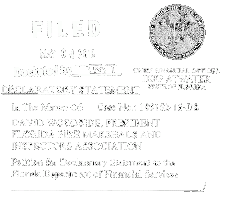 In his first question, Woodside asks if an Engineered Life Safety System is required in existing high-rise buildings that aren�t protected throughout by an approved automatic fire sprinkler system or an exterior exit access from each dwelling unit. In his first question, Woodside asks if an Engineered Life Safety System is required in existing high-rise buildings that aren�t protected throughout by an approved automatic fire sprinkler system or an exterior exit access from each dwelling unit.
Answering Woodside, Deputy Chief Financial Officer Jay Etheridge said, �Yes. Existing high-rise apartment occupancies, including residential condominiums and cooperatives, that are not protected throughout by an approved automatic fire sprinkler..., or that do not have an exterior exit access..., must complete an engineered life safety system approved by the AHJ...�
Woodside also asked if a high-rise building is not protected throughout with an approved automatic sprinkler system pursuant to the statutory opt-out in Chapter 718.112, is it exempt from providing an Engineered Life Safety System as required in provision #3?
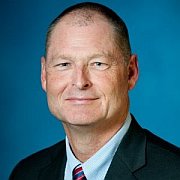 | FLORIDA DEPUTY CHIEF FINANCIAL
OFFICER JAY ETHERIDGE |
Etheridge responded, �No.� The statutory opt-out �expressly restricts the requirements of automatic fire sprinkler systems to high-rise buildings utilized as residential condominiums or cooperatives pursuant to sections 718.111 and 718.112, Florida Statutes, and specifically supersedes the NFPA base code. However,� provision #3... �clarifies that, if the entire building is not protected by an approved automatic sprinkler system, it must comply with the� FFPC provisions for sprinklers in high-rise buildings, which �requires that� the existing high-rise building have either an exterior exit access for every dwelling unit� or have an engineered life safety system approved by the AHJ (Authority Having Jurisdiction)...�
Finally, Woodside asked, �If the answer to questions #1 is yes, what is the deadline for an existing high-rise occupancy...� to install an engineered life safety system?
Etheridge answered "The deadline for an existing high-rise occupancy to comply with the provision of� the engineered life safety system is December 31, 2019...�
 Having functionally neutered the statutory opt-out, Etheridge concluded, "Based on the foregoing, apartment occupancy, specifically a condominium and cooperative, are exempt from installing an approved automatic fire sprinkler system if every dwelling in the occupancy has FFPC compliant exterior exit access, or if the occupancy has an engineered life safety system that is approved by the AHJ. The building is required to be protected by an approved automatic fire sprinkler system by December 31, 2019, or it must comply with the requirements of FFPC 101:31." Having functionally neutered the statutory opt-out, Etheridge concluded, "Based on the foregoing, apartment occupancy, specifically a condominium and cooperative, are exempt from installing an approved automatic fire sprinkler system if every dwelling in the occupancy has FFPC compliant exterior exit access, or if the occupancy has an engineered life safety system that is approved by the AHJ. The building is required to be protected by an approved automatic fire sprinkler system by December 31, 2019, or it must comply with the requirements of FFPC 101:31."
 The Statute provides that �Notwithstanding chapter 633 or of any other code, statute, ordinance, administrative rule, or regulation, or any interpretation of the foregoing, an association, condominium, or unit owner is not obligated to retrofit the common elements, association property, or units of a residential condominium with a fire sprinkler system in a building that has been certified for occupancy by the applicable governmental entity if the unit owners have voted to forego such retrofitting by the affirmative vote of a majority of all voting interests in the affected condominium.� The Statute provides that �Notwithstanding chapter 633 or of any other code, statute, ordinance, administrative rule, or regulation, or any interpretation of the foregoing, an association, condominium, or unit owner is not obligated to retrofit the common elements, association property, or units of a residential condominium with a fire sprinkler system in a building that has been certified for occupancy by the applicable governmental entity if the unit owners have voted to forego such retrofitting by the affirmative vote of a majority of all voting interests in the affected condominium.�
 Despite recognizing that the statute supersedes Florida-specific code, Etheridge concludes that the statutory prohibition against enforcing �any other code, statute, ordinance, administrative rule, or regulation, or any interpretation of the foregoing� that requires the installation of sprinklers does not apply to FFPC 101:31.3.5.11.3. While conceding that it is a Florida-specific code, he believes it exempt because it requires fewer sprinklers � and a pi�ata stuffed with detection, alarm and suppression goodies. Despite recognizing that the statute supersedes Florida-specific code, Etheridge concludes that the statutory prohibition against enforcing �any other code, statute, ordinance, administrative rule, or regulation, or any interpretation of the foregoing� that requires the installation of sprinklers does not apply to FFPC 101:31.3.5.11.3. While conceding that it is a Florida-specific code, he believes it exempt because it requires fewer sprinklers � and a pi�ata stuffed with detection, alarm and suppression goodies.
Although we may disagree with Etheridge's questionable interpretation - it will provide local fire marshals with a basis for ignoring the statutory opt-out, and mandating the installation of sprinklers in conjunction with an ELSS. Instead of using their best judgment to assess the adequacy of each association�s fire safety protection, many of our less scrupulous Fire Marshals will simply enforce the purchase of $multi-million sprinkler retrofits, cementing some post-retirement private sector benefits � on your dime.
Back to Square One

 Here�s the problem. In the 2003, 2006 and 2009 retrofit relief bills, it plainly states that the legislation applies to a full sprinkler retrofit and the ELSS. In Bogdanoff's successful 2010 statutory amendment, although the language describes how an association that votes to opt-out �is not obligated to retrofit the common elements, association property, or units of a residential condominium with a fire sprinkler system,� it fails to specify that the opt-out also applies to an engineered life safety system - leaving just enough wiggle room for the slippery interpretive gymnastics performed by Etheridge. Here�s the problem. In the 2003, 2006 and 2009 retrofit relief bills, it plainly states that the legislation applies to a full sprinkler retrofit and the ELSS. In Bogdanoff's successful 2010 statutory amendment, although the language describes how an association that votes to opt-out �is not obligated to retrofit the common elements, association property, or units of a residential condominium with a fire sprinkler system,� it fails to specify that the opt-out also applies to an engineered life safety system - leaving just enough wiggle room for the slippery interpretive gymnastics performed by Etheridge.
 | | FORT LAUDERDALE FIRE MARSHAL JEFF LUCAS |
On Thursday, May 5, Fort Lauderdale Fire Marshal Jeff Lucas forwarded a copy of Woodside�s Declaratory Statement to the Neighborhood Association, and informed GMCA President Pio Ieraci �As this DEC statement reads, the (ELSS) Engineered Life Safety System would be required if the condos do not have any fire sprinklers.� A few weeks later several Galt Mile officials met with Lucas to solicit his input and discuss the huge toll this will take on homeowners. Fair minded and forthright, after suggesting that a full sprinkler retrofit may be less expensive than an ELSS (debunking a common misconception), Lucas cast doubt on the official interpretation embodied in the Declaratory Statement, observing �I would think if you opt out, then you opt out of all.� Aware of how the skewed interpretation conflicts with the legislative intent, Lucas clarified his expectation that associations will �pursue this issue with the State.�
When contacted about this backdoor relegation of State Law, Florida CFO and State Fire Marshal Jeff Atwater regretfully admitted that his hands were tied. Although this is a rank attempt to rip off association homeowners for $billions, it appears that the only recourse is a return trip to Tallahassee. Although we are back at square one, it isn�t our first time at the dance. Stay tuned...

Click To Top of Page
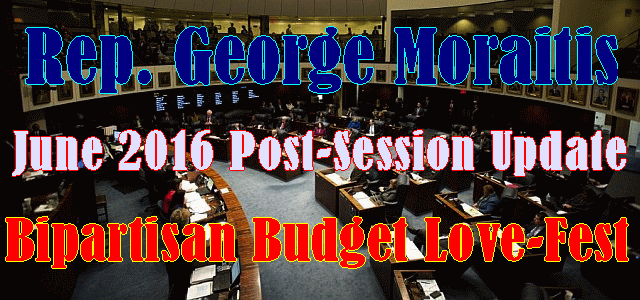

Commentary
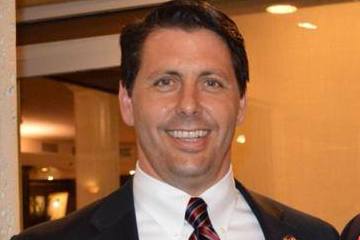 | | REPRESENTATIVE MORAITIS - PORT UPGRADES |
 July 12, 2016 - In his June 2016 Newsletter, District 93 Statehouse Representative George Moraitis reviews how the 2016 State Budget will impact constituents. Moraitis takes pride in a State contribution to planned improvements in Port Everglades, asserts that legislative leaders are conversant with the importance of Beach Renourishment, outlines a sizable appropriation to Everglades Restoration, cites a controversial tax cut package � capped by a �Back to School� sales tax holiday, describes a �historic investment� in Florida schools and applauds a $500,000 award benefitting Homeless participants in the City of Fort Lauderdale�s Rapid Rehousing Program. July 12, 2016 - In his June 2016 Newsletter, District 93 Statehouse Representative George Moraitis reviews how the 2016 State Budget will impact constituents. Moraitis takes pride in a State contribution to planned improvements in Port Everglades, asserts that legislative leaders are conversant with the importance of Beach Renourishment, outlines a sizable appropriation to Everglades Restoration, cites a controversial tax cut package � capped by a �Back to School� sales tax holiday, describes a �historic investment� in Florida schools and applauds a $500,000 award benefitting Homeless participants in the City of Fort Lauderdale�s Rapid Rehousing Program.
Blending a Bipartisan Budget

 Our District 93 Representative apparently drew his data from a mid-session iteration of a Statehouse Budget � one of three circulated during the legislative session. While Budget bills were also filed in The Florida Senate, Governor Scott�s handlers spent $millions promoting his �Florida First� budget. After consigning Governor Scott�s fiscal handiwork to an organic landfill, a conference Committee comprised of House and Senate appointees crunched their respective spending plans - vaporized a $billion discrepancy - and cobbled together the final 2016 Florida Budget. Our District 93 Representative apparently drew his data from a mid-session iteration of a Statehouse Budget � one of three circulated during the legislative session. While Budget bills were also filed in The Florida Senate, Governor Scott�s handlers spent $millions promoting his �Florida First� budget. After consigning Governor Scott�s fiscal handiwork to an organic landfill, a conference Committee comprised of House and Senate appointees crunched their respective spending plans - vaporized a $billion discrepancy - and cobbled together the final 2016 Florida Budget.
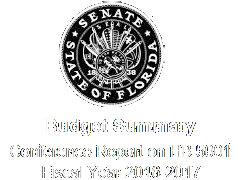 For insight into our elected officials plan to burn through your money, the Florida Senate website provides links to the budget documents, appropriation bills and Conference Reports relating to House Bill 5001 (HB 5001), the FY 2016-17 General Appropriations Act. Along with implementing and conforming companion bills, HB 5001 houses the $82.3 billion state budget [$30.3 billion placed in General Revenues (GR) and $52.1 billion socked into Trust Funds (TF)]. For insight into our elected officials plan to burn through your money, the Florida Senate website provides links to the budget documents, appropriation bills and Conference Reports relating to House Bill 5001 (HB 5001), the FY 2016-17 General Appropriations Act. Along with implementing and conforming companion bills, HB 5001 houses the $82.3 billion state budget [$30.3 billion placed in General Revenues (GR) and $52.1 billion socked into Trust Funds (TF)].
 | | REPRESENTATIVE JOHN TOBIA VOTES NO |
In contrast with last year�s dysfunctional session, when feuding lawmakers who prematurely bolted from the State Capital were forced to return and complete the controversial budget in a 3-week special session, this year was a Love-In. In part, lawmakers sought to avoid the puerile histrionics that anger the home folks � since all 160 seats in the House and Senate are up for grabs in November. Featuring a $4 billion increase over the 2015 budget, this year�s spending plan garnered unanimous Senate approval and only one �no� vote in the house - cast by Statehouse Representative John Tobia (R - Melbourne), who nurtures a reputation for spitting into the wind.
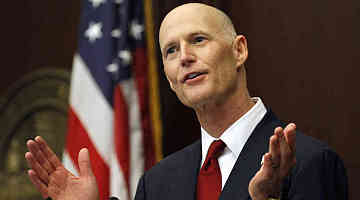 | | GOVERNOR RICK SCOTT |
The 2016 budget benchmarked an unprecedented political phenomenon � a Republican spending plan approved by every Democrat in both houses. Worthy of a three-episode Twilight Zone, this cosmic inconsistency was largely provoked by Governor Scott, whose heavy-handed fiscal intentions for education, health care and the environment fueled a heated battle with House and Senate Republican leaders � which bubbled across the aisle.
 Having spent $millions on TV and print ads promoting the $1 billion tax cut promised for the first two years of his second term, Scott was furious when lawmakers capped tax cuts at $129.1 million in House Bill 7099 (HB 7099). Scott was further enraged by Republican leaders� refusal to fund nearly $800 million in business tax cuts for manufacturers and retailers. They also ignored the Governor�s top legislative priority, a proposed $250 million corporate feedbag for the Florida Enterprise Fund. Having spent $millions on TV and print ads promoting the $1 billion tax cut promised for the first two years of his second term, Scott was furious when lawmakers capped tax cuts at $129.1 million in House Bill 7099 (HB 7099). Scott was further enraged by Republican leaders� refusal to fund nearly $800 million in business tax cuts for manufacturers and retailers. They also ignored the Governor�s top legislative priority, a proposed $250 million corporate feedbag for the Florida Enterprise Fund.
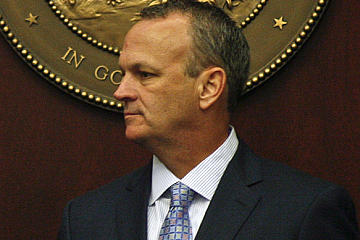 | | HOUSE BUDGET CHAIR RICHARD CORCROAN |
To help fortify the legislature against gubernatorial retribution, House budget chief (and incoming House Speaker) Richard Corcroan (R-Land O�Lakes) actively included the Democratic minority in the budget process. Corcoran later told celebrating Democrats, �We listened to what you said.�
 | | SENATE DEMOCRATIC LEADER ARTHENIA JOYNER |
Observing how the Governor�s regressive public policies served to unify angry lawmakers, Senate Democratic Leader Arthenia Joyner (D - Tampa) jumped on a rare opportunity to applaud how Democrats impacted an ordinarily partisan Republican budget process, commenting, �We reclaimed our place in the checks and balances of our democracy by reining in a governor who�s out of touch with the people.� Corny - but on point.
 Recalling how Scott struck $461 million from last year�s budget, lawmakers promised a Special Session veto override if Scott used line item vetoes to strip funding for education and/or the environment. It worked. Instead of widening the breach, Scott offered an olive branch - and expressed support for the new budget. Recalling how Scott struck $461 million from last year�s budget, lawmakers promised a Special Session veto override if Scott used line item vetoes to strip funding for education and/or the environment. It worked. Instead of widening the breach, Scott offered an olive branch - and expressed support for the new budget.
 Lawmakers were also pleased when Scott intimated that he would restrict his vetoes to the elimination of redundant appropriations, although their relief wasn�t limited to budgetary concerns about education or the environment. To help campaigning lawmakers in their home districts, the new budget was packed with �Member Projects� � legislative spin for pork. Since many of last year�s vetoes eviscerated similar pork projects, when Scott renounced a heavy veto pen this year, electioneering lawmakers had a clear field to deliver dozens of museums, aquariums, parks and festivals, along with improvements to courthouses, town halls and water & drainage projects. Lawmakers were also pleased when Scott intimated that he would restrict his vetoes to the elimination of redundant appropriations, although their relief wasn�t limited to budgetary concerns about education or the environment. To help campaigning lawmakers in their home districts, the new budget was packed with �Member Projects� � legislative spin for pork. Since many of last year�s vetoes eviscerated similar pork projects, when Scott renounced a heavy veto pen this year, electioneering lawmakers had a clear field to deliver dozens of museums, aquariums, parks and festivals, along with improvements to courthouses, town halls and water & drainage projects.
To avoid rekindling a conflict with irate lawmakers, Scott circulated a list of his planned vetoes before signing the budget a week later on March 17. Far more modest than anticipated, the $256 million in redacted appropriations affected none of the legislature�s budget priorities.  Among the projects defunded by Scott were programs for after-school mentoring, youth crime-prevention, inmate re-entry and family counseling, along with a smattering of local pork � such as a cattlemen�s arena in Hardee County, a Masonic Lodge in Rosewood and a livestock pavilion for the Central Florida Fair. For Representative Moraitis� June 2016 Newsletter, read on... - [editor] Among the projects defunded by Scott were programs for after-school mentoring, youth crime-prevention, inmate re-entry and family counseling, along with a smattering of local pork � such as a cattlemen�s arena in Hardee County, a Masonic Lodge in Rosewood and a livestock pavilion for the Central Florida Fair. For Representative Moraitis� June 2016 Newsletter, read on... - [editor]
Moraitis June 2016 Post-Session Newsletter

|
| |

June 2016
Post-Session Newsletter
Dear Friends and Neighbors,
 | | REPRESENTATIVE GEORGE MORAITIS |
I consider it a great honor to represent you in the Florida House of Representatives, and am very proud of the results we accomplished this Session. I would like to share with you some of our accomplishments during the 2016 Legislative Session, which just concluded in Tallahassee. Perhaps more than in any other year, we involved our local constituents in the process to bring more accountability to Tallahassee. I remained focused on advancing the economic engines and job creators in our region, funding education, cutting taxes, and keeping our communities and citizens safe.
 This year the Legislature passed a fiscally responsible, bipartisan budget that prioritizes our state�s greatest needs. This balanced budget provides meaningful tax relief, invests in our students� success, and supports greater achievement in local schools with record education funding. We tackled the critical tasks of spurring economic development and made Florida #1 in job creation. Our fiscally sound, long-term approach will keep our state on a path to continued economic prosperity. This year the Legislature passed a fiscally responsible, bipartisan budget that prioritizes our state�s greatest needs. This balanced budget provides meaningful tax relief, invests in our students� success, and supports greater achievement in local schools with record education funding. We tackled the critical tasks of spurring economic development and made Florida #1 in job creation. Our fiscally sound, long-term approach will keep our state on a path to continued economic prosperity.
 With all the competing interests in Tallahassee, I continue to take the lead in the legislature on behalf of the Port Everglades, Fort Lauderdale-Hollywood International Airport, and Broward County beach renourishment. At the same time, I have championed initiatives to protect our fragile Florida environment, create new jobs, improve our economy, and improve our quality of life. It is hard work - but rewarding, and I appreciate the opportunity to serve you every single day. With all the competing interests in Tallahassee, I continue to take the lead in the legislature on behalf of the Port Everglades, Fort Lauderdale-Hollywood International Airport, and Broward County beach renourishment. At the same time, I have championed initiatives to protect our fragile Florida environment, create new jobs, improve our economy, and improve our quality of life. It is hard work - but rewarding, and I appreciate the opportunity to serve you every single day.
As always, my door is open to you. Our office is very active in helping our constituents with a variety of needs on a daily basis, and I welcome your feedback as we consider legislation to improve our great state. It is an honor to be your advocate in the Florida House of Representatives, and I look forward to seeing you soon.
In the issue:
Port Everglades
 | | PORT EVERGLADES |
Port Everglades is among the busiest cruise ports in the world, and one of Florida�s leading container ports. It is also South Florida's main seaport for receiving petroleum products including gasoline, jet fuel, and alternative fuels. As one of South Florida's leading economic engines, Port Everglades indirectly supports 202,700 Florida jobs, including 11,433 people who work for companies that provide direct services to the Port.
 | | PANAMA CANAL EXPANSION |
As we commemorate the completion of the Panama Canal expansion this year, the Florida Legislature understands the vital importance our region plays in international trade and the stability of South Florida�s economy, and is committed to doing what is necessary to improve Port Everglades. I am proud to announce that working with the Florida Department of Transportation, Broward County and Port Everglades, our House 2016 Budget includes over $12 million towards the crucial expansion projects currently underway at the Port. Congratulations to Broward County, Port Everglades and the Port Everglades Action Team as together we made a great case for the further allocation of state resources in support of these goals.
 This widespread support of this project will ensure Port Everglades remains an international trade center that attracts thousands of long-term private sector jobs to the area. The deepening and widening of the Port Everglades, together with the development of additional piers, is estimated to create 7,000 new jobs and support an additional 135,000 jobs statewide over the next 15 years. Port Everglades anticipates $653 million in new infrastructure investment upgrades between 2015 - 2019 as part of this initiative. I am making sure the Legislature understands the key role it must play in making this investment a reality, and we anticipate funding a total of $122 million for Port expansion between now and 2021 to complete this historic project, bring more jobs to our area, and maintain the Port Everglades as a world class port. This widespread support of this project will ensure Port Everglades remains an international trade center that attracts thousands of long-term private sector jobs to the area. The deepening and widening of the Port Everglades, together with the development of additional piers, is estimated to create 7,000 new jobs and support an additional 135,000 jobs statewide over the next 15 years. Port Everglades anticipates $653 million in new infrastructure investment upgrades between 2015 - 2019 as part of this initiative. I am making sure the Legislature understands the key role it must play in making this investment a reality, and we anticipate funding a total of $122 million for Port expansion between now and 2021 to complete this historic project, bring more jobs to our area, and maintain the Port Everglades as a world class port.
Beach Restoration
 | | SEGMENT II BEACH RENOURISHMENT |
Our state leadership understands how vitally important the beaches are to our economy and this commitment is reflected in this year�s budget. Tourism remains a substantial part of our local and state economies, and studies have shown that the majority of tourists come to enjoy our world class beaches. For this reason, and to protect the property values in our coastal community, I have made funding for the renourishment of our beaches a top priority, and as a result over just the past three years the state has dedicated over seven million dollars to Broward County beach renourishment efforts. The result? We are making tremendous progress, with over 600,000 cubic yards of sand being added to nearly four miles of the beaches in Fort Lauderdale, Lauderdale-By-The-Sea, and Pompano Beach.
Everglades� Restoration
 | | EVERGLADES� RESTORATION |
Your Florida Legislature has made great progress during this session to protect Florida�s delicate environmental resources and preserve them for future generations. Florida is blessed with over 51,000 miles of rivers and streams, 7,700 lakes, and over 900 springs. The rare and beautiful Florida Everglades is a unique treasure to our ecosystem, and its protection is of the utmost importance to our state�s environmental and economic wellbeing. This year, the Florida House budget put into action the desire of Floridians to continue Everglades� restoration and improve our environment. We passed a comprehensive water policy bill and a dedicated funding source for Everglades� restoration and preservation, and under the House Legacy Florida proposal, $198 million will be provided for Everglades� restoration to preserve its beauty and protect this vital environmental resource for future generations. This responsible plan allocates $100 million for comprehensive restoration, $32 million for the regional water quality plan, and $66 million for Northern Everglades and estuaries protection. Contained within the proposal is funding to help restore the Indian River Lagoon. High levels of toxic algae blooms as well as harmful bacteria that have been detected are poising a crucial threat to several species of fish, birds, and mammals dwelling in the rich habitat. Flourishing natural environments are vital to Florida�s ecosystem, economy, the tourism industry, and the sustainable development of each region.
Tax Relief Package
 We are providing meaningful tax relief for individuals and small businesses while also infusing more money directly into our economy, and this year�s tax package will not only help Florida�s businesses create jobs, but make Florida a more affordable state to live and raise a family. This Session, the Florida Legislature passed over half a billion dollars in tax cuts in order to help Florida�s families and job creators. In fact, over the last two years, we have brought a total of $1 billion in common sense tax relief. Major tax cut initiatives in the package include $428 million in property tax relief for Florida homeowners, removal of sales tax on purchasing of manufacturing equipment, �Back to School� sales tax holiday from August 5-7, and removing the sales tax on food and drinks sold to members of veteran organizations. We are providing meaningful tax relief for individuals and small businesses while also infusing more money directly into our economy, and this year�s tax package will not only help Florida�s businesses create jobs, but make Florida a more affordable state to live and raise a family. This Session, the Florida Legislature passed over half a billion dollars in tax cuts in order to help Florida�s families and job creators. In fact, over the last two years, we have brought a total of $1 billion in common sense tax relief. Major tax cut initiatives in the package include $428 million in property tax relief for Florida homeowners, removal of sales tax on purchasing of manufacturing equipment, �Back to School� sales tax holiday from August 5-7, and removing the sales tax on food and drinks sold to members of veteran organizations.
�Back to School� Tax Holiday
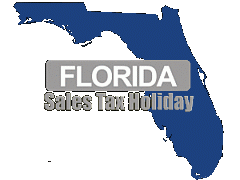 Your state legislature also approved the popular �Back to School� sales tax holiday to give Florida�s families the opportunity to save more of their hard-earned money, while ensuring our students have the tools they need to succeed in the classroom. The three-day sales tax holiday will take place on August 5-7, 2016. Sales tax will not be applied to clothing and shoes priced $60 or less per item, and school supplies priced $15 or less per item. Improving the education of our children is very important to our state�s legislature, and helping families spend less on school supplies is a great way to start the school year! Your state legislature also approved the popular �Back to School� sales tax holiday to give Florida�s families the opportunity to save more of their hard-earned money, while ensuring our students have the tools they need to succeed in the classroom. The three-day sales tax holiday will take place on August 5-7, 2016. Sales tax will not be applied to clothing and shoes priced $60 or less per item, and school supplies priced $15 or less per item. Improving the education of our children is very important to our state�s legislature, and helping families spend less on school supplies is a great way to start the school year!
Education
 Together we have shown our commitment to the promise of an outstanding public education for our students and a better future for the children of our state. During this session, the Legislature worked on several important bills with respect to education. The Florida House showed its commitment to providing a quality education for Florida�s students by making historic investments in our state�s education system in this year�s budget. The PreK- 12 Education budget contains the highest amount of state funds ever, totaling $14.2 billion, which is a total of $7,231.57 per student. The House budget also includes $20 million for Preeminent State Universities and $10 million for Emerging Preeminent State Universities to encourage our universities to strive for academic and research excellence, and offer more high-quality educational opportunities to Floridians. We have also included $75 million in additional State University Performance to reward our universities that prepare students to get good jobs after graduation, not just framed degrees. I am thankful for my colleagues in the House who passed this bill favorably with significant bipartisan support. Together we have shown our commitment to the promise of an outstanding public education for our students and a better future for the children of our state. During this session, the Legislature worked on several important bills with respect to education. The Florida House showed its commitment to providing a quality education for Florida�s students by making historic investments in our state�s education system in this year�s budget. The PreK- 12 Education budget contains the highest amount of state funds ever, totaling $14.2 billion, which is a total of $7,231.57 per student. The House budget also includes $20 million for Preeminent State Universities and $10 million for Emerging Preeminent State Universities to encourage our universities to strive for academic and research excellence, and offer more high-quality educational opportunities to Floridians. We have also included $75 million in additional State University Performance to reward our universities that prepare students to get good jobs after graduation, not just framed degrees. I am thankful for my colleagues in the House who passed this bill favorably with significant bipartisan support.
Rapid Rehousing Appropriation
 On any given day there are hundreds of men, women, and children that call the streets of Fort Lauderdale home. This is both heartbreaking and unacceptable. This legislative session, I had the honor to support the fight to end homelessness by requesting state funding for the City of Fort Lauderdale�s Rapid Rehousing Program. The program provides financial assistance and services to prevent individuals and families from becoming homeless. In addition to this, the program helps those who are experiencing homelessness to be quickly re-housed and stabilized. Not only is rapid rehousing more cost-effective than other programs, it also produces long-term results from one-time costs since it is effective at keeping rehoused individuals from returning to homelessness. Directly funding the Rapid Rehousing Program strengthens and supports the Broward County Continuum of Care Plan to End Homelessness. This initiative is one of the single most important interventions in the fight to end homelessness, and I am pleased to announce our Florida Legislature awarded $500,000 from this year�s budget to the City of Fort Lauderdale�s Rapid Re-Housing Program. It is my hope that these funds will both prevent people from becoming homeless, and help the hundreds who are experiencing homelessness move quickly into their own stable housing. On any given day there are hundreds of men, women, and children that call the streets of Fort Lauderdale home. This is both heartbreaking and unacceptable. This legislative session, I had the honor to support the fight to end homelessness by requesting state funding for the City of Fort Lauderdale�s Rapid Rehousing Program. The program provides financial assistance and services to prevent individuals and families from becoming homeless. In addition to this, the program helps those who are experiencing homelessness to be quickly re-housed and stabilized. Not only is rapid rehousing more cost-effective than other programs, it also produces long-term results from one-time costs since it is effective at keeping rehoused individuals from returning to homelessness. Directly funding the Rapid Rehousing Program strengthens and supports the Broward County Continuum of Care Plan to End Homelessness. This initiative is one of the single most important interventions in the fight to end homelessness, and I am pleased to announce our Florida Legislature awarded $500,000 from this year�s budget to the City of Fort Lauderdale�s Rapid Re-Housing Program. It is my hope that these funds will both prevent people from becoming homeless, and help the hundreds who are experiencing homelessness move quickly into their own stable housing.
Sincerely,


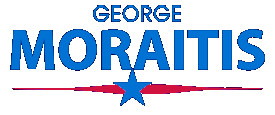
State Representative - District 93
|


Click To Top of Page


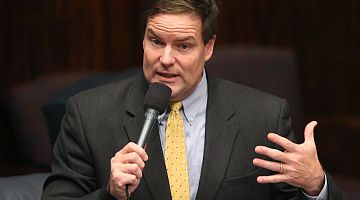 | | SENATOR AARON BEAN |
June 26, 2016 - On June 14, 2016, Executive Director Yeline Goin of the Community Association Leadership Lobby (CALL) alerted the Galt Mile Community Association to a legislative change that impacts how associations must process certain prospective lessees - specifically - the men and women who defend our country with their lives. On August 8, 2015, Florida Senator Aaron Bean (R - Jacksonville) filed Senate Bill 184 � a pi�ata of eclectic benefits for veterans and active duty members of the U.S. Armed Forces.
 Waltzing through vetting committees to unanimous approvals in both houses, the legislation was enacted on April 15, 2016 (Chapter 2016-242). After its July 1, 2016 effective date, the new law will expedite a servicemember�s consideration for tenancy in a Florida Condominium, Cooperative or Homeowner Association. Waltzing through vetting committees to unanimous approvals in both houses, the legislation was enacted on April 15, 2016 (Chapter 2016-242). After its July 1, 2016 effective date, the new law will expedite a servicemember�s consideration for tenancy in a Florida Condominium, Cooperative or Homeowner Association.
 As defined in Section 250.01, Florida Statutes, a �servicemember� is �Any person serving as a member of the United States Armed Forces on active duty or state active duty (sic - when ordered by the Governor or Adjutant General) and all members of the Florida National Guard and United States Reserve Forces.� As defined in Section 250.01, Florida Statutes, a �servicemember� is �Any person serving as a member of the United States Armed Forces on active duty or state active duty (sic - when ordered by the Governor or Adjutant General) and all members of the Florida National Guard and United States Reserve Forces.�
 Among other provisions, the Bill created Section 83.683, Florida Statutes., three brief paragraphs that detail how Florida landlords must process tenancy applications submitted by servicemembers. The first paragraph provides that the application must be approved or denied in writing within 7 days - and denials must be accompanied by a reason. If the servicemember meets all other terms of the application and lease, landlords who blow the deadline must approve the rental. Among other provisions, the Bill created Section 83.683, Florida Statutes., three brief paragraphs that detail how Florida landlords must process tenancy applications submitted by servicemembers. The first paragraph provides that the application must be approved or denied in writing within 7 days - and denials must be accompanied by a reason. If the servicemember meets all other terms of the application and lease, landlords who blow the deadline must approve the rental.
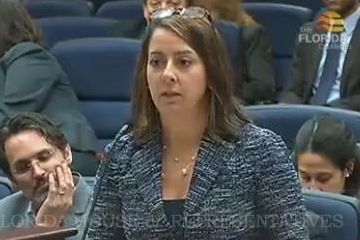 | | CALL EXECUTIVE DIRECTOR YELINE GOIN |
 Superseding time frames delimited by an association�s rules or governing documents, the second paragraph extends the mandate to Florida associations that screen prospective tenants. Unless servicemember rental applications for association units or parcels are approved or denied in writing within 7 days of submission - along with reason(s) for denial - the tenant must be approved �if all other terms of the application and lease are complied with.� Superseding time frames delimited by an association�s rules or governing documents, the second paragraph extends the mandate to Florida associations that screen prospective tenants. Unless servicemember rental applications for association units or parcels are approved or denied in writing within 7 days of submission - along with reason(s) for denial - the tenant must be approved �if all other terms of the application and lease are complied with.�
  Leery of loopholes engineered by larcenous landlords or associations, the Statute�s closing paragraph admonishes �The provisions of this section may not be waived or modified by the agreement of the parties under any circumstances.� Leery of loopholes engineered by larcenous landlords or associations, the Statute�s closing paragraph admonishes �The provisions of this section may not be waived or modified by the agreement of the parties under any circumstances.�
To avoid risking a troublesome violation due to an inadvertent oversight, Goin recommends a minor modification to the association�s eligibility application. Simply ask if the prospective tenant is a servicemember � as defined in Section 250.01, Florida Statutes. Three minutes on the word processor should do the trick.


Click To Top of Page
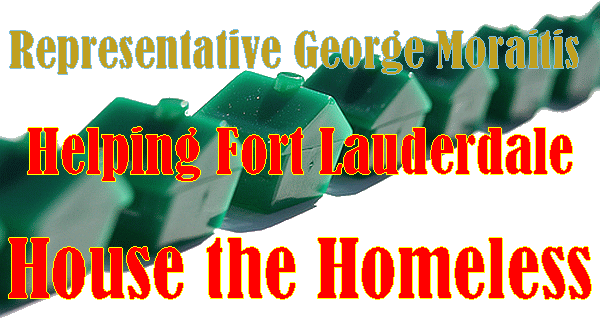

Commentary

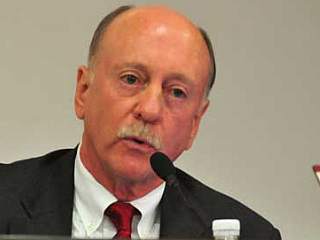 | | CITY COMMISSIONER BRUCE ROBERTS |
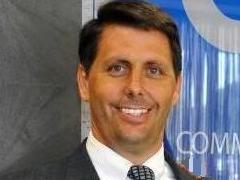 | | REPRESENTATIVE MORAITIS - THE HOMELESS |
 June 6, 2016 - Despite Florida�s fetid reputation as a mine field for the homeless, Fort Lauderdale maintains one of the State�s most effective homeless safety nets, as roving teams of Homeless Advocates and FLPD officers annually make roughly 8,000 referrals to critical services for anyone who stumbles over the question �Where did you sleep last night?� Initially developed by District 1 City Commissioner Bruce Roberts during his tenure as Fort Lauderdale Chief of Police, the City�s inaugural homeless policy funneled resources into voluntary programs that offer medical assistance, food and housing. A cornerstone of the Broward Partnership for the Homeless, the City also subsidizes comprehensive recovery resources for homeless men, women and families at the Partnership�s Homeless Assistance Center in Fort Lauderdale. June 6, 2016 - Despite Florida�s fetid reputation as a mine field for the homeless, Fort Lauderdale maintains one of the State�s most effective homeless safety nets, as roving teams of Homeless Advocates and FLPD officers annually make roughly 8,000 referrals to critical services for anyone who stumbles over the question �Where did you sleep last night?� Initially developed by District 1 City Commissioner Bruce Roberts during his tenure as Fort Lauderdale Chief of Police, the City�s inaugural homeless policy funneled resources into voluntary programs that offer medical assistance, food and housing. A cornerstone of the Broward Partnership for the Homeless, the City also subsidizes comprehensive recovery resources for homeless men, women and families at the Partnership�s Homeless Assistance Center in Fort Lauderdale.
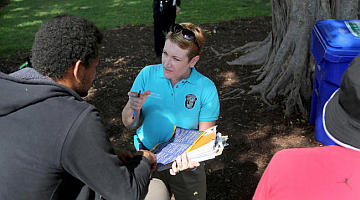 | | POLICE HOMELESS OUTREACH |
Working with Homeless Advocates, Police Officers participating in the outreach effort encourage bench dwellers to avail themselves of government-funded or privately subsidized charitable programs that additionally provide counseling, employment preparation, family reunification, transportation, emergency financial assistance and other resources designed to address the causes and consequences of homelessness. Connecting �street people� to this battery of critical services is often the first step in a complex and highly customized course of recovery. If arrested, a referral to the Broward County Homeless Initiative Partnership (BCHIP) triggers a post release contact by a social worker to formulate an appropriate assistance regimen. Launched as a partnership between the Fort Lauderdale Police Department and the Broward Coalition for the Homeless, the formula evolved into a national prototype.
 Every Fort Lauderdale Police officer knows that the success of this homeless program hinges on the willingness of participants to trade a dangerous lifestyle for a stable home and steady employment � and their ability to achieve that objective. Since the homeless community�s experience with local governments in Florida is less than inspiring, assistance is often declined. Citing a 2015 HUD assessment, the National Alliance to End Homelessness estimates that 15% of the homeless population is chronic � unable or unwilling to leave the streets. In 2009, the U.S. Congress provided local governments with a less daunting option for the chronic homeless. Every Fort Lauderdale Police officer knows that the success of this homeless program hinges on the willingness of participants to trade a dangerous lifestyle for a stable home and steady employment � and their ability to achieve that objective. Since the homeless community�s experience with local governments in Florida is less than inspiring, assistance is often declined. Citing a 2015 HUD assessment, the National Alliance to End Homelessness estimates that 15% of the homeless population is chronic � unable or unwilling to leave the streets. In 2009, the U.S. Congress provided local governments with a less daunting option for the chronic homeless.
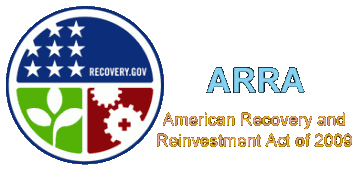 On February 17, 2009, President Barack Obama signed the American Recovery and Reinvestment Act (ARRA) of 2009, which includes $1.5 billion for a Homelessness Prevention Fund. Funding for this program, called the Homelessness Prevention and Rapid Re-Housing Program (HPRP), is provided to state housing authorities & related agencies, and then distributed to cities, counties, local charities and non-profits. Local grantee jurisdictions include Broward County and the Cities of Fort Lauderdale, Pompano Beach, Sunrise and Hollywood. On February 17, 2009, President Barack Obama signed the American Recovery and Reinvestment Act (ARRA) of 2009, which includes $1.5 billion for a Homelessness Prevention Fund. Funding for this program, called the Homelessness Prevention and Rapid Re-Housing Program (HPRP), is provided to state housing authorities & related agencies, and then distributed to cities, counties, local charities and non-profits. Local grantee jurisdictions include Broward County and the Cities of Fort Lauderdale, Pompano Beach, Sunrise and Hollywood.
 | | BROWARD PARTNERSHIP HOMELESS ASSISTANCE CENTER |
HPRP offers a new slant on how jurisdictions might address the litany of root causes traditionally responsible for a shared symptom - homelessness. Instead of linking eligibility for housing candidates to their prospects for a successful recovery, this program reserves eligibility for those candidates most �at risk� for dying on the street. The new protocol cuts to the chase - and places homeless people in homes - a safe environment - prior to helping them reassert control over their lives. Surprisingly, it appears to work. Leery Homeless Advocates who initially disparaged the program have since become staunch supporters.
 Grantees may use HPRP funds for any combination of four primary eligible activities: (1) Financial Assistance; (2) Housing Relocation and Stabilization Services; (3) Data Collection and Evaluation; and (4) Administrative Costs. To become an eligible beneficiary, a household must be vetted by a case manager to ascertain the type of assistance required; be at or below 50 percent of Area Median Income (AMI); be either homeless or at risk of losing its housing; lack alternative housing options and; lack the financial resources and support networks needed to obtain immediate housing or remain in existing housing. Grantees may use HPRP funds for any combination of four primary eligible activities: (1) Financial Assistance; (2) Housing Relocation and Stabilization Services; (3) Data Collection and Evaluation; and (4) Administrative Costs. To become an eligible beneficiary, a household must be vetted by a case manager to ascertain the type of assistance required; be at or below 50 percent of Area Median Income (AMI); be either homeless or at risk of losing its housing; lack alternative housing options and; lack the financial resources and support networks needed to obtain immediate housing or remain in existing housing.
 | | REHOUSED FAMILY IN NEW HOME |
Using Federal Recovery Act (ARRA) resources to house the homeless, the Fort Lauderdale Homelessness Prevention and Rapid Re-Housing Program also assists individuals and families facing eviction, foreclosure, or otherwise at risk for becoming homeless. Intended to target �individuals and families who would be homeless but for this assistance,� program funds are applicable to short-term (up to 3 months) or medium-term (up to 18 months) rental deficits, vouchers for motels or hotels, housing relocation and stabilization services. Once a beneficiary is off the street, the program mitigates traditional recovery pitfalls - offering assistance with mediation & legal representation, credit counseling, security or utility deposits, utility payments, moving costs, and case management. If a beneficiary finds work or receives benefits, 30 percent of the income feeds the kitty.
 | | HOMELESS ADVOCATE NAN ROMAN |
 In 2014, Fort Lauderdale used a $440,000 federal grant to permanently house 22 chronic homeless persons. Participating in a nationwide effort called the �100,000 Homes Campaign�, after screening disabled homeless applicants for those most at risk, program beneficiaries were permanently housed in one of the City Housing Authority�s apartments. They are provided furnishings, amenities and regular visits by case workers. As observed by Nan Roman, president of the Washington-based National Alliance to End Homelessness, Research shows that over 85 percent who receive permanent supported housing stay housed - and numerous published studies indicate the savings in health care and corrections costs.� In November of 2014, Mayor Jack Seiler announced that the City�s �Housing First initiative was re-funded for a second year,� providing another $455,000 to house the City�s most at risk chronic homeless in 2015. As per Representative Moraitis, in 2016, the legislature again funded the program, approving a $500,000 appropriation from the Florida Department of Economic Opportunity. In 2014, Fort Lauderdale used a $440,000 federal grant to permanently house 22 chronic homeless persons. Participating in a nationwide effort called the �100,000 Homes Campaign�, after screening disabled homeless applicants for those most at risk, program beneficiaries were permanently housed in one of the City Housing Authority�s apartments. They are provided furnishings, amenities and regular visits by case workers. As observed by Nan Roman, president of the Washington-based National Alliance to End Homelessness, Research shows that over 85 percent who receive permanent supported housing stay housed - and numerous published studies indicate the savings in health care and corrections costs.� In November of 2014, Mayor Jack Seiler announced that the City�s �Housing First initiative was re-funded for a second year,� providing another $455,000 to house the City�s most at risk chronic homeless in 2015. As per Representative Moraitis, in 2016, the legislature again funded the program, approving a $500,000 appropriation from the Florida Department of Economic Opportunity.

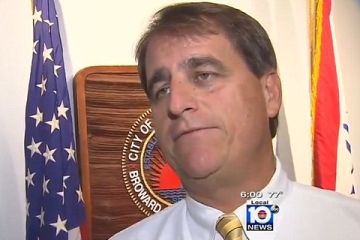 | | FORT LAUDERDALE MAYOR JACK SEILER |
With more than 105,000 people already housed in 186 participating communities nationwide, a buzz phrase in the organization�s manifesto - �Housing First� - speaks to how it differs from traditional homeless programs, since eligibility isn�t contingent on prior graduation from substance abuse counseling or job training. It�s also a win for taxpayers. The housing cost is far less than the cost of incarceration, or the endless cycle of emergency room medical care that consequences life on the street.
 The HPRP financial aid is meant to be immediate. In noting how program beneficiaries are �quickly re-housed and stabilized,� Moraitis references inherent program deadlines. Once the grant agreement is signed by HUD, grantees must minimally disburse 60 percent of the stimulus funds within the first two years and the entire allocation within three years. Although Senate Bill 1534 (enacted as Chapter 2016 � 210, Laws of Florida), A.K.A. The Homeless Bill, states that the expedited spending timetable precludes beneficiaries from developing �a dependency on the assistance,� Congress had another motive. The HPRP financial aid is meant to be immediate. In noting how program beneficiaries are �quickly re-housed and stabilized,� Moraitis references inherent program deadlines. Once the grant agreement is signed by HUD, grantees must minimally disburse 60 percent of the stimulus funds within the first two years and the entire allocation within three years. Although Senate Bill 1534 (enacted as Chapter 2016 � 210, Laws of Florida), A.K.A. The Homeless Bill, states that the expedited spending timetable precludes beneficiaries from developing �a dependency on the assistance,� Congress had another motive.  While the Recovery Act was gathering momentum on the Hill, supporters and opponents debated how to best deter local governments from warehousing grant money in budgetary slush funds, until reallocated to a local Slime Mold festival, or a wireless entertainment center in the Town Hall executive washroom. For Representative Moraitis� take on how the City�s homeless housing policy is developing, peruse his May 2016 constituent message - [editor] While the Recovery Act was gathering momentum on the Hill, supporters and opponents debated how to best deter local governments from warehousing grant money in budgetary slush funds, until reallocated to a local Slime Mold festival, or a wireless entertainment center in the Town Hall executive washroom. For Representative Moraitis� take on how the City�s homeless housing policy is developing, peruse his May 2016 constituent message - [editor]

Rep. George Moraitis May 2016 Constituent Update

|
| |

May 2016
Post Session Newsletter
Dear Friends and Neighbors,
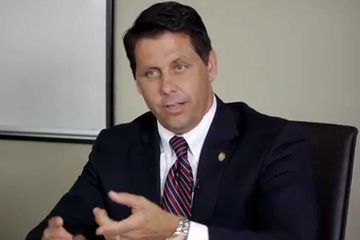 | | REPRESENTATIVE GEORGE MORAITIS |
One of the things I love about being a state representative is getting to represent the people of my home town. From the world-class beaches, to Port Everglades, to the myriad of canals that have earned our city the nickname of the �Venice of America,� Fort Lauderdale is the place to be! Fort Lauderdale is the eighth largest city in Florida, and the largest city in Broward county, boasting a wide range of booming industries that strengthen our economy and provide residents with a great quality of life.
 | | HOMELESS IN FORT LAUDERDALE |
Just as we are diverse in our industries, we are also a diverse people. On any given day a visitor to our city can hear conversations being spoken in different languages, and at the same time they can view people from all walks of life: from those who are affluent to those who live in the midst of poverty. While we are a city of world class beauty, it remains a sad fact that on any given night there are hundreds upon hundreds of men, women, and children who call the streets of Fort Lauderdale home. While this is disappointing it also provides an opportunity for us to show compassion and work together to help the homeless.
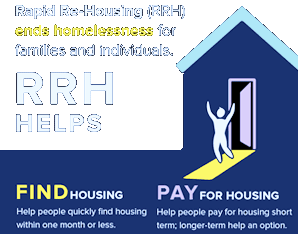 This legislative session, I had the privilege to work with leaders of the City of Fort Lauderdale fighting our homeless problem through my support of the City's Rapid Re-Housing Program. This program is not merely a temporary shelter or soup kitchen, but rather it is a comprehensive homeless strategy that leverages resources and unifies efforts for ending homelessness. This project provides financial assistance and services to prevent individuals and families from becoming homeless, and it also helps those who are experiencing homelessness to be quickly re-housed and stabilized. This legislative session, I had the privilege to work with leaders of the City of Fort Lauderdale fighting our homeless problem through my support of the City's Rapid Re-Housing Program. This program is not merely a temporary shelter or soup kitchen, but rather it is a comprehensive homeless strategy that leverages resources and unifies efforts for ending homelessness. This project provides financial assistance and services to prevent individuals and families from becoming homeless, and it also helps those who are experiencing homelessness to be quickly re-housed and stabilized.
 | | JAMES MONTGOMERY RONDALYN HARDEN IN NEW HOME |
The cost of homelessness can be very high. Hospitalization, medical treatment, incarceration, police intervention and emergency shelter expenses can add up very quickly, making homelessness surprisingly expensive for municipalities and taxpayers. The Rapid Rehousing Program demonstrates that a housing-based approach to homelessness is not only more cost-effective than a shelter-based approach, but more effective in the long term.
  This initiative is one of the single most important interventions in the fight to end homelessness in our area, and I am pleased to announce our Florida Legislature awarded $500,000 from this year�s budget as a grant to the City of Fort Lauderdale�s Rapid Re-Housing Program. It is my hope that these funds will assist the program in preventing people from becoming homeless, as well as help the hundreds who are experiencing homelessness move quickly into their own stable housing. Through these efforts I believe we will build a better future for our community and improve the quality of life for all who call Fort Lauderdale home. This initiative is one of the single most important interventions in the fight to end homelessness in our area, and I am pleased to announce our Florida Legislature awarded $500,000 from this year�s budget as a grant to the City of Fort Lauderdale�s Rapid Re-Housing Program. It is my hope that these funds will assist the program in preventing people from becoming homeless, as well as help the hundreds who are experiencing homelessness move quickly into their own stable housing. Through these efforts I believe we will build a better future for our community and improve the quality of life for all who call Fort Lauderdale home.
Sincerely,



State Representative - District 93
|


Click To Top of Page



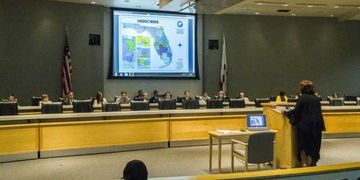 | | REDISTRICTING IN TALLAHASSEE |
April 17, 2016 - After four trials, three special sessions and eight rulings from the Florida Supreme Court, the lines delimiting Florida�s State Senate districts and Congressional districts were finally redrawn. Although the new district boundaries may minimally impact many jurisdictions, not so for the Galt Mile.
A congressional district map and state Senate map used to define political boundaries since 2012 were both struck down by the courts this year when a coalition of voting rights groups spearheaded by the League of Women Voters and Common Cause provided evidence that districts were designed to protect either the Republican majority or incumbent Democrats.
Fair Districts: Reclaiming Florida Elections

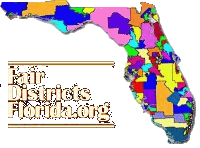 In early 2010, a redistricting reform advocacy group called �Fair Districts Florida� (AKA �Fair Districts Now�) populated petitions with more than a million signatures to insure that Constitutional Amendments 5 and 6 were placed on the November 2010 Florida ballot. Subsequent approval by at least 60% of the electorate would amend the State Constitution and change the way state legislative districts (Amendment 5) and congressional districts (Amendment 6) were drawn. Among other criteria, the amendments would require that districts be contiguous, compact, roughly equal in population size and use existing city/country boundaries when possible. In early 2010, a redistricting reform advocacy group called �Fair Districts Florida� (AKA �Fair Districts Now�) populated petitions with more than a million signatures to insure that Constitutional Amendments 5 and 6 were placed on the November 2010 Florida ballot. Subsequent approval by at least 60% of the electorate would amend the State Constitution and change the way state legislative districts (Amendment 5) and congressional districts (Amendment 6) were drawn. Among other criteria, the amendments would require that districts be contiguous, compact, roughly equal in population size and use existing city/country boundaries when possible.
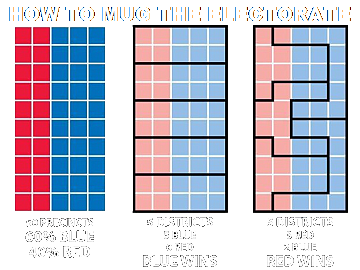 Angry Republican Legislative leaders cobbled together a third amendment (HJR 7231) which they planned to group with the other two on the November 2010 ballot. Although HJR 7231 (Amendment 7) contained many of the same provisions included in the two grass roots reforms, sponsoring lawmakers sought to conceal a critical omission. The Florida Supreme Court voted to boot Amendment 7 from the ballot, declaring its ballot summary �confusing and lacking critical information,� since it failed to disclose omitting the requirement that districts be contiguous, enabling lawmakers to stitch together geographically disparate voter blocks friendly to a particular party or incumbent, or dilute communities considered a political obstacle. The Galt Mile could have conceivably been pasted into a district in downtown Jacksonville, the Big Cypress Indian Reservation... or the Krome Detention Center. The court also rejected a last ditch Statehouse maneuver to excise Amendments 5 and 6 from the ballot. Angry Republican Legislative leaders cobbled together a third amendment (HJR 7231) which they planned to group with the other two on the November 2010 ballot. Although HJR 7231 (Amendment 7) contained many of the same provisions included in the two grass roots reforms, sponsoring lawmakers sought to conceal a critical omission. The Florida Supreme Court voted to boot Amendment 7 from the ballot, declaring its ballot summary �confusing and lacking critical information,� since it failed to disclose omitting the requirement that districts be contiguous, enabling lawmakers to stitch together geographically disparate voter blocks friendly to a particular party or incumbent, or dilute communities considered a political obstacle. The Galt Mile could have conceivably been pasted into a district in downtown Jacksonville, the Big Cypress Indian Reservation... or the Krome Detention Center. The court also rejected a last ditch Statehouse maneuver to excise Amendments 5 and 6 from the ballot.
 Despite legislator attempts to subvert the citizens� ballot initiative, 63% of the voters in the November 2010 election successfully fitted the Florida Constitution with redistricting standards based on factors unrelated to party and/or incumbency, replacing nearly two centuries of cultural reassignment, racial & ethnic gerrymandering and partisan vote dilution. Despite legislator attempts to subvert the citizens� ballot initiative, 63% of the voters in the November 2010 election successfully fitted the Florida Constitution with redistricting standards based on factors unrelated to party and/or incumbency, replacing nearly two centuries of cultural reassignment, racial & ethnic gerrymandering and partisan vote dilution.
 The Florida Constitution had long viewed gerrymandering as a legal enterprise � like iron man paintball, Karaoke or racial profiling (see Patriot Act) � prior to approval of the amendments, and it was practiced with impunity by generations of �good old boys� from the majority party in Tallahassee, Democrat and Republican. Since many Florida Legislators treat constitutional dictums as irrelevant decorative accessories, the reforms in Amendments 5 and 6 were accompanied by a unique enforcement strategy. The Florida Constitution had long viewed gerrymandering as a legal enterprise � like iron man paintball, Karaoke or racial profiling (see Patriot Act) � prior to approval of the amendments, and it was practiced with impunity by generations of �good old boys� from the majority party in Tallahassee, Democrat and Republican. Since many Florida Legislators treat constitutional dictums as irrelevant decorative accessories, the reforms in Amendments 5 and 6 were accompanied by a unique enforcement strategy.
Mills: Constitutional Cop

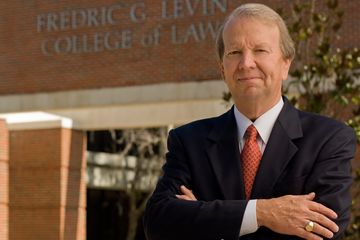 | | PROFESSOR JON MILLS |
Jon Mills [Dean Emeritus, University of Florida Levin College of Law; Florida House of Representatives (1978-1988); Speaker (1987-88); Founding Director, Center for Government Responsibility (1973-80) (1988-present); Professor of Florida Constitutional Law; Style and Drafting Chair of the 1998 Florida Constitution Revision Commission; Florida Federal Judicial Nominating Committee (2009); American Bar Association-Advisory Commission to the World Justice Project (2007-08); etc.], an impeccably credentialed constitutional authority and principal author of the amendments � sought to preclude backsliding lawmakers from circumventing the new criteria by installing a legal mechanism that would enable a court to determine when district boundaries were manipulated for personal and/or political purposes.
 In the past, the official redistricting public record was limited to comments that preceded creation of new district maps. Therefore, nothing in the redistricting paper trail indicated when lawmakers failed to correct deficiencies about which they were unquestionably aware (and often helped to create). Mills armed the amendments with language insuring that �The public, the press and non-governmental organizations will have an opportunity to comment before and after the Legislature draws the initial maps.� In the past, the official redistricting public record was limited to comments that preceded creation of new district maps. Therefore, nothing in the redistricting paper trail indicated when lawmakers failed to correct deficiencies about which they were unquestionably aware (and often helped to create). Mills armed the amendments with language insuring that �The public, the press and non-governmental organizations will have an opportunity to comment before and after the Legislature draws the initial maps.�
 This simple protocol provided process watchdogs with an opportunity to officially document evidence of a district�s constitutional inadequacy. In other words, any failure by the Legislature to comply with constitutional standards would become part of the public record. Within 15 days of a plan�s legislative approval (by joint resolution), the Attorney General must petition the Florida Supreme Court for a declaratory judgment confirming the plan�s validity. This is where it gets interesting. This simple protocol provided process watchdogs with an opportunity to officially document evidence of a district�s constitutional inadequacy. In other words, any failure by the Legislature to comply with constitutional standards would become part of the public record. Within 15 days of a plan�s legislative approval (by joint resolution), the Attorney General must petition the Florida Supreme Court for a declaratory judgment confirming the plan�s validity. This is where it gets interesting.
 If the legislature corrects shortcomings identified in the public record, the amendment�s purpose is served. However, if the legislature ignores the warnings and creates districts that are constitutionally deficient, the public record would contain evidence that the non-compliant districts were created by lawmakers who were fully aware of their deficiencies, thereby demonstrating intent to favor a party or incumbent, a key threshold for disqualification. The gambit worked. In 2015, attorneys representing the coalition of voter rights groups used Mill�s legal slip knot to demonstrate that the House and Senate maps all favored incumbents. If the legislature corrects shortcomings identified in the public record, the amendment�s purpose is served. However, if the legislature ignores the warnings and creates districts that are constitutionally deficient, the public record would contain evidence that the non-compliant districts were created by lawmakers who were fully aware of their deficiencies, thereby demonstrating intent to favor a party or incumbent, a key threshold for disqualification. The gambit worked. In 2015, attorneys representing the coalition of voter rights groups used Mill�s legal slip knot to demonstrate that the House and Senate maps all favored incumbents.
Congressional Mapping Mockery

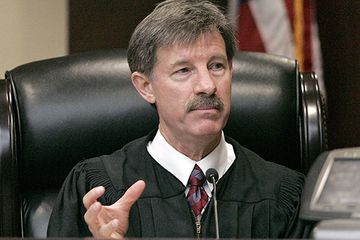 | | CIRCUIT JUDGE TERRY LEWIS |
After three years of bouncing around the courts, coalition suits filed in the Second Judicial Circuit began coming to fruition in 2015, beginning with a challenge to the State�s Congressional district map for violating Florida�s Constitutional Fair District provisions. When Circuit Court Judge Terry Lewis declared Florida�s Congressional Districts unconstitutional on July 10, 2014, he accused Republican operatives of �conducting a secret, organized campaign that made a mockery of the Legislature�s transparent and open process of redistricting.� Opening his scathing ruling with a quote from George Washington�s Farewell Address of 1796, an incredulous Lewis warned that �cunning, ambitious, and unprincipled men will be enabled to subvert the power of the people and to usurp for themselves the reins of government, destroying afterwards the very engines which have lifted them to unjust dominion.�
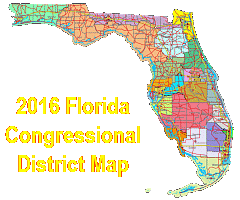 Having sent the legislative leadership back to the drawing board, Lewis later examined maps reconfigured by lawmakers in the House and the Senate as well as three maps provided by the coalition. On October 9, 2015, Lewis� selected a map entitled �Coalition CP1�, which trampled the fewest city and county borders. In a December 2, 2015 split opinion, the Florida Supreme Court upheld Lewis� decision by a vote of 5-2. Having sent the legislative leadership back to the drawing board, Lewis later examined maps reconfigured by lawmakers in the House and the Senate as well as three maps provided by the coalition. On October 9, 2015, Lewis� selected a map entitled �Coalition CP1�, which trampled the fewest city and county borders. In a December 2, 2015 split opinion, the Florida Supreme Court upheld Lewis� decision by a vote of 5-2.
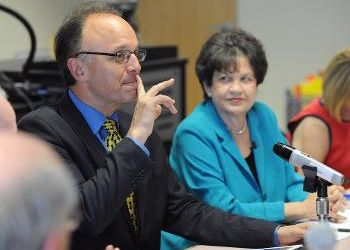 | | TED DEUTCH AND LOIS FRANKEL |
In an opinion brief, the State high court wrote, �Our opinion today � the eighth concerning legislative or congressional apportionment during this decade since the adoption of the landmark Fair Districts Amendment � should bring much needed finality to litigation concerning this state�s congressional redistricting that has now spanned nearly four years in state courts.� The new voter boundaries will shake up Congressional representation in jurisdictions across the State, including Broward County. Some of the communities in District 22 � where the Galt Mile will remain � were relocated to adjacent districts, and replaced by other neighborhoods.
 The two parallel congressional districts running north-south through Broward and Palm Beach counties, District 22 along the beach represented by Lois Frankel (D-West Palm Beach), and the inland District 21 served by Ted Deutch (D-West Boca), are turned on their side. District 21 will be entirely in Palm Beach County, while District 22 will run from Coral Springs east to the coast, then south to Fort Lauderdale, but also includes Boca Raton. During her tenure, Frankel has worked with the Galt Mile�s neighborhood association and Broward officials to achieve local objectives. When NOAA Fisheries blocked the long-delayed Segment II beach renourishment, Frankel helped rattle the dilatory Commerce Department agency. She also lobbied the Army Corps of Engineers Civil Works Committee to green light Port Everglades infrastructure improvements. The two parallel congressional districts running north-south through Broward and Palm Beach counties, District 22 along the beach represented by Lois Frankel (D-West Palm Beach), and the inland District 21 served by Ted Deutch (D-West Boca), are turned on their side. District 21 will be entirely in Palm Beach County, while District 22 will run from Coral Springs east to the coast, then south to Fort Lauderdale, but also includes Boca Raton. During her tenure, Frankel has worked with the Galt Mile�s neighborhood association and Broward officials to achieve local objectives. When NOAA Fisheries blocked the long-delayed Segment II beach renourishment, Frankel helped rattle the dilatory Commerce Department agency. She also lobbied the Army Corps of Engineers Civil Works Committee to green light Port Everglades infrastructure improvements.

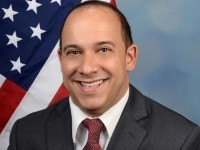 | | BOCA REPUBLICAN JOSEPH BENSMIHEN |
Although Deutch and Frankel both live in the newly drawn District 21, they have been slow to indicate who will run in the district or whether either will seek election in Broward District 22 where neither resides. They have both agreed to avoid running against one another. Deutch was expected to stay in Palm Beach and Frankel in Broward. After the Supreme Court ruling, they turned the tables. Deutch announced his intention to run in District 22, explaining �My connections to Broward are long and they are deep, and I�m proud of them.� Frankel said she would serve her Palm Beach constituency in District 21.
 | | DNC CHAIR DEBBIE WASSERMAN SCHULTZ |
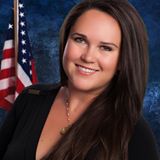 | | REALTOR ANDREA MCGEE |
In District 21, Automotive Repair Instructor Sean David Standard, a West Palm Beach Republican, filed papers with the FEC on January 28, 2016, indicating his intent to run. Boca Raton Republican Joseph Bensmihen, proprietor of geriatric management companies Boca Home Care and United Elder Care Services, announced his candidacy in District 22. He�ll face Fort Lauderdale realtor Andrea McGee in the Republican primary.
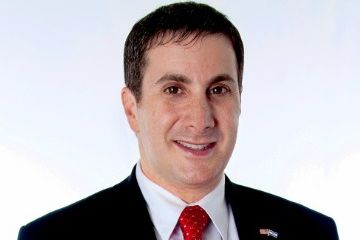 | | JOE KAUFMAN |
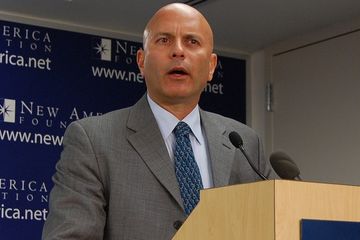 | | PROFESSOR TIM CANOVA |
In District 23, embattled DNC Chair Debbie Wasserman Schultz faces a Primary challenge from Democrat Wall Street reformer Tim Canova, an attorney and Professor of Law and Public Finance at Nova Southeastern University Shepard Broad College of Law. In the general election, investigative journalist and 5-time Congressional candidate Republican Joe Kaufman plans a 6th reach for the brass ring. Completing a crowded field are Independent David Mendenhall and Stephanie Anderson (NPA).
Court Dumps Scam Senate Maps

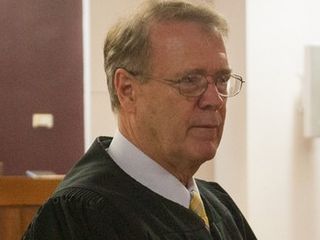 | | CIRCUIT JUDGE GEORGE REYNOLDS |
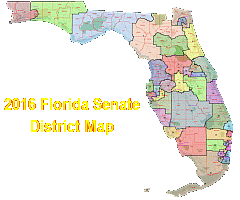 After ruling against a Senate District map submitted by Senate leaders in December, on January 5, 2016, Leon County Circuit Judge George Reynolds (Tallahassee) also selected Senate District map version 2012�CA�2842 submitted by the coalition (named for the Case Number of League of Women Voters of Florida, et.al. vs. Kenneth Detzner, et.al.), citing its compliance with the same Constitutional Fair Districts directive. On January 20, Majority Leader and future Senate President Bill Galvano (R-Bradenton), who drafted the rejected Senate map, convinced current Senate President Andy Gardiner (R-Orlando) that the Legislature shouldn�t oppose the court-sanctioned maps, despite prospective legal issues open to appeal. The new Senate map was etched in stone on February 8, when the door closed on the appeals process - at least until the 10-year redistricting cycle is once again triggered by completion of the census. After ruling against a Senate District map submitted by Senate leaders in December, on January 5, 2016, Leon County Circuit Judge George Reynolds (Tallahassee) also selected Senate District map version 2012�CA�2842 submitted by the coalition (named for the Case Number of League of Women Voters of Florida, et.al. vs. Kenneth Detzner, et.al.), citing its compliance with the same Constitutional Fair Districts directive. On January 20, Majority Leader and future Senate President Bill Galvano (R-Bradenton), who drafted the rejected Senate map, convinced current Senate President Andy Gardiner (R-Orlando) that the Legislature shouldn�t oppose the court-sanctioned maps, despite prospective legal issues open to appeal. The new Senate map was etched in stone on February 8, when the door closed on the appeals process - at least until the 10-year redistricting cycle is once again triggered by completion of the census.
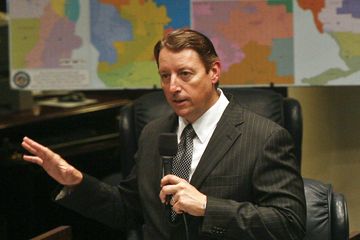 | | SENATOR BILL GALVANO ON REDISTRICTING |
In 2016, Floridians will vote for State Senators in every district. To stagger the four-year Senate terms going forward, candidates who successfully run in even-numbered districts will only serve two years, while those in odd-numbered districts will serve full four year terms.
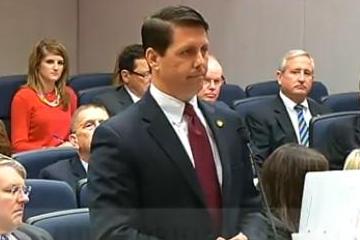 | | STATEHOUSE REP. GEORGE MORAITIS |
Since the Galt Mile�s District 34 State Senator, Maria Sachs (D-Delray Beach), has essentially been a �No-Show� for her Broward constituents, Galt Mile officials relied primarily on District 93 Statehouse Representative George Moraitis (R-Fort Lauderdale) to further the neighborhood�s legislative agenda - occasionally turning to District 29 Senator Jeremy Ring (D-Parkland) � as well as other pro-association State Senators � for help with companion legislation in the other house.
Bogdanoff vs. Sachs

 | | FORMER DISTRICT 25 SEN. ELLYN BOGDANOFF |
When egregiously gerrymandered Florida Senate voting maps enraged Senate Democrats in 2012, they were offered an olive branch � the demise of former District 25 Senator Ellyn Bogdanoff. A two-step political decapitation, after erasing incumbent Bogdanoff�s marginally Democratic-leaning District 25, her Broward coastal constituents were lumped into incumbent Maria Sachs� heavily Democratic District 34 in Palm Beach � setting the stage for the sole Florida Senate race in 2012 that faced off two incumbents.
 | | FLORIDA SENATOR MARIA SACHS |
Bogdanoff's Broward support crossed party lines. While her Democrat constituents may have disagreed with her conservative political agenda, they appreciated the bills she sponsored to protect their associations and benefit their neighborhoods, including legislation that enabled associations fully compliant with the fire code to "opt out" of a mandated fire sprinkler retrofit costing $millions, and a series of omnibus association bills that enhanced unit owner rights and home values while eliminating costly glitches in the Condominium and Cooperative Acts. Bogdanoff also sponsored bills that expanded the use of exculpatory DNA testing, delivered economic measures that helped restore the Florida maritime industry while drafting anti-bullying legislation that evolved into a nationwide template.
 In contrast, Sachs sponsored legislation to regulate the parasailing industry, added Mandarin and Farsi to the language curriculum in Florida Public Schools and co-sponsored an anti-texting while driving bill. Not surprisingly, Bogdanoff's strong bi-partisan showing by Broward voters wasn�t enough to offset Sachs� overwhelmingly Democratic South Palm Beach constituency. Bogdanoff lost her seat by a 5% margin. In a second bite at the apple two years later, she lost by a margin of 4%. In contrast, Sachs sponsored legislation to regulate the parasailing industry, added Mandarin and Farsi to the language curriculum in Florida Public Schools and co-sponsored an anti-texting while driving bill. Not surprisingly, Bogdanoff's strong bi-partisan showing by Broward voters wasn�t enough to offset Sachs� overwhelmingly Democratic South Palm Beach constituency. Bogdanoff lost her seat by a 5% margin. In a second bite at the apple two years later, she lost by a margin of 4%.
 | | SACHS - PARASAILING BILL |
Fears by Broward voters that Sachs would favor the interests of her Palm Beach base were soon realized. Despite opening a second District office in Broward Government Center, Sachs was slow to harvest constituent input below the county line. On September 11, 2013, she traveled to the Beach Community Center to participate in a community discussion about Citizens Property Insurance while occasionally gracing a few civic groups or associations with a luncheon appearance. In the four years since 2012, she attended two meetings with the Galt Mile Community Association. During the last one, when members expressed concern about the seemingly interminable obstacles to beach renourishment, Sachs mummified the room by describing her longstanding support for keeping our beaches clean. When other attending officials quietly explained that they were discussing the need to protect coastal communities from storm surge by reclaiming fast disappearing beaches, Sachs scrambled, adding �I support that, too.�
South Florida Senate Bingo

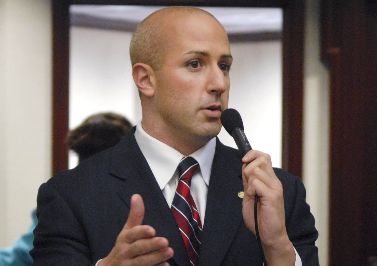 | | SENATOR JOSEPH ABRUZZO |
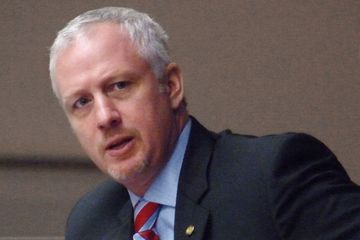 | | SENATOR JEFF CLEMENS |
The revised Senate maps will place Sachs in a newly crafted District 31 with two other Democrat Palm Beach Senate incumbents, Joseph Abruzzo (D-Wellington) and Jeff Clemens (D-Lake Worth). Since Clemens has long represented the central Palm Beach coast, he will likely run in District 31, which includes the northern part of Sachs� current district and the eastern part of Abbruzzo�s. Since the adjacent District 29 contains Sachs� Boca Raton power base, and most of Abbruzzo�s current district, it appears that the two Democrat incumbents will soon slug it out. The district also dips into Broward, encompassing Parkland and Coconut Creek.
 | | SENATOR CHRIS SMITH |
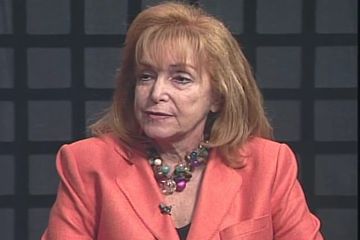 | | SENATOR ELEANOR SOBEL |
Since Chris Smith (D-Fort Lauderdale), Eleanor Sobel (D-Hollywood), and Jeremy Ring (D-Parkland) will all fall prey to term limits, except for a small strip of south Broward in Minority Leader Oscar Braynon�s (D-Miami Gardens) north Dade district, the rest of Broward County is up for grabs. Smith hopes to win the District 9 seat on the Broward Commission from Dale Holness in November. With the announced departure of Hollywood Mayor Peter Bober, Sobel plans to take on Hollywood City Commissioner Patty Asseff for the job. Having just accepted a bid of more than $2 million for his 8900 sq. ft. Parkland palace, it is unclear where popular Yahoo! millionaire Jeremy Ring will resurface.
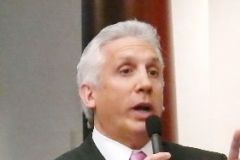 | | FORMER STATE REPRESENTATIVE JIM WALDMAN |
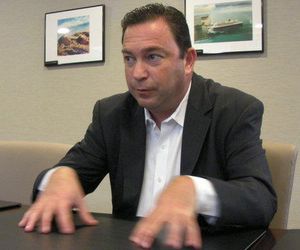 | | SENATOR JEREMY RING |
There is no shortage of applicants for the open Broward Senate seats. Founder of Lauren�s Kids, child sex abuse activist Lauren Book hopes to inherit Sobel�s constituents. Although they had both originally coveted the seat that will soon be vacated by Jeremy Ring, the homes of Former State Representative Jim Waldman of Coconut Creek and attorney Gary Farmer of Parkland are now located in the small clump of inland north Broward attached to the expansive Palm Beach District 29, where Sachs and Abbruzzo are preparing for battle. Looking to fill Chris Smith�s shoes in the redrawn District 33 are Statehouse Representative Gwen Clarke-Reed (D-Deerfield Beach) and former State Representative Perry Thurston. To date, no Republicans have expressed their intention to venture candidacy in a county knocked by Tallahassee Republicans as �The Killing Fields�.
 | | ACTIVIST LAUREN BOOK |
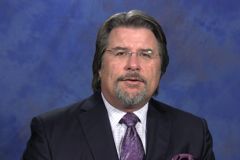 | | ATTORNEY GARY FARMER |
Having initially signed on to serve a Broward constituency, Waldman and Farmer want no part of the imminent political crossfire by Palm Beach Senators in District 29. After engineering expedited relocations to comply with residency requirements, they plan to move their contest to District 40, which will house Broward�s coastal communities from Deerfield Beach to Hollywood - including the Galt Mile.
 Since the district falls entirely within Broward County, district residents will no longer be treated as red-headed stepchildren - and the Galt Mile will once again have a voice in the State Senate, someone conversant with County and local agendas. If Lauren Book wants to avoid a three-way dogfight, the 30 year-old daughter of megabucks lobbyist Ron Book will consider launching her political career in District 32, which includes all of West Broward. Since the district falls entirely within Broward County, district residents will no longer be treated as red-headed stepchildren - and the Galt Mile will once again have a voice in the State Senate, someone conversant with County and local agendas. If Lauren Book wants to avoid a three-way dogfight, the 30 year-old daughter of megabucks lobbyist Ron Book will consider launching her political career in District 32, which includes all of West Broward.
Lawmakers vs. Voters: Purging a Rats� Nest

Until now, legislative leaders have successfully dodged the intent of the Fair Districts Constitutional reforms, preserving political protocols that allow lawmakers to choose their voters by pasting together blocks friendly to a particular party or incumbent. Using the courts to equip the 2010 constitutional mandate with teeth, the voter groups hope to flip the script, enabling Floridians to explore the novel prospect of voters choosing their lawmakers. Who knows? If it catches on, it may spread to other States.

Click To Top of Page
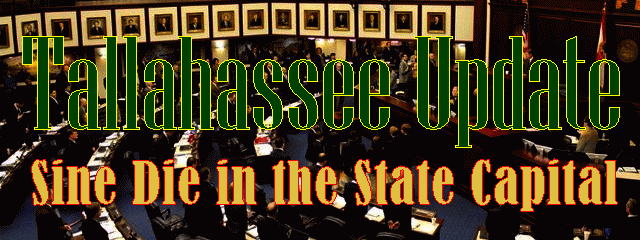

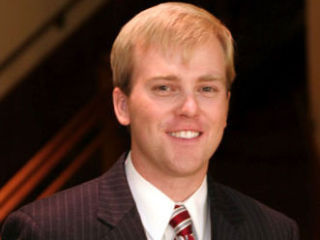 | | REPRESENTATIVE JAMES GRANT |
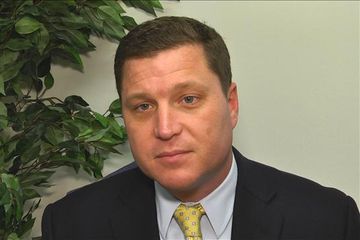 | | SENATOR JEFFREY BRANDES |
March 26, 2016 - With a handful of exceptions, dozens of association bills filed during the 2016 Legislative Session were finally exiled to the ever-expanding Tallahassee boneyard. In the last week of the session, a set of companion bills in the House and Senate were poised to become legislative trains, repositories for bits and pieces of stalled legislation whose sponsors hoped to rescue from death on the calendar. Senate Bill 1050 filed by Senator Jeffrey Brandes (R - St. Petersburg) and House Bill 1187, sponsored by Representative James W. �J.W.� Grant (R - Tampa), relating to the Department of Business and Professional Regulations (DBPR), were besieged by lawmakers with bills destined for oblivion.
Tallahassee Train Time

 | | TALLAHASSEE TRAIN WRECK |
Essentially deregulation bills, they were suddenly bloated by an eclectic collection of unrelated provisions including (HB 1357/SB 1716) a mandate that large associations upload association documents (i.e. association financial records, contracts, unit owner accounts, insurance policies, etc.) to a new or expanded website (hackable by the average tech savvy eighth grader), (HB 1405/SB 1292) the removal of an exemption for associations with fewer than 50 units which currently allows them to prepare a report of cash receipts and expenditures in lieu of an audit, review, or compilation based on annual revenues, (HB 203/SB 722) a requirement that estoppel certificate fees must be paid from the proceeds at closing (sound familiar?), and dozens more last ditch maneuvers by lawmakers desperately attempting to salvage fast-fading bills.
The association-related provisions were subsequently dumped from HB 1187 when deemed irrelevant to a DBPR deregulation bill. Also burdened with a laundry list of orphaned bill provisions was Senate companion bill SB 1040, which remained on the Senate�s Special Order Calendar from March 4 through March 11, but was never heard. In short, the trains never left the station.
Estoppel Endgame

 In early February, association advocates lamented how legislation widely known as �The Home Tax� would adversely impact association homeowners. Fueled by Title Company lobbyists and the powerful Realtors Association, House Bill 203 filed by Rep. John Wood (R - Winter Haven) and Senate Bill 722 filed by Sen. Kelli Stargel (R � Lakeland) threaten to dump the cost of preparing estoppel certificates on an association�s unit owners. Since Wood is a Realtor and Stargel owns and operates several Real Estate companies, the legislation would line their pockets. In early February, association advocates lamented how legislation widely known as �The Home Tax� would adversely impact association homeowners. Fueled by Title Company lobbyists and the powerful Realtors Association, House Bill 203 filed by Rep. John Wood (R - Winter Haven) and Senate Bill 722 filed by Sen. Kelli Stargel (R � Lakeland) threaten to dump the cost of preparing estoppel certificates on an association�s unit owners. Since Wood is a Realtor and Stargel owns and operates several Real Estate companies, the legislation would line their pockets.
 Of the bills� prospective statutory changes, the most damaging is a prohibition against the association being paid upon delivering the estoppel certificate. Instead, the bill would require that estoppel costs and fees be paid to the association from the proceeds at closing. If the unit doesn�t close, and the association is unable to collect from the seller � as often occurs when distressed properties are being sold by owners already delinquent on their association obligations � the association is left holding the bag. Of the bills� prospective statutory changes, the most damaging is a prohibition against the association being paid upon delivering the estoppel certificate. Instead, the bill would require that estoppel costs and fees be paid to the association from the proceeds at closing. If the unit doesn�t close, and the association is unable to collect from the seller � as often occurs when distressed properties are being sold by owners already delinquent on their association obligations � the association is left holding the bag.
 The bill also initially capped how much an association could charge for preparing an estoppel certificate. The legislation set the fee at $200 if the unit is free of delinquencies, or $400 if not. When a unit is swimming in debt, burdened with multiple liens or entangled in litigation, such complex estoppels would typically cost the association more than the bills� maximum amount recoverable at closing. Any difference was also hung on the necks of unit owners. The bill also initially capped how much an association could charge for preparing an estoppel certificate. The legislation set the fee at $200 if the unit is free of delinquencies, or $400 if not. When a unit is swimming in debt, burdened with multiple liens or entangled in litigation, such complex estoppels would typically cost the association more than the bills� maximum amount recoverable at closing. Any difference was also hung on the necks of unit owners.
While codifying a confusing procedure and precluding unjustifiable fees are useful and productive objectives, Statute shouldn�t force an association's unit owners to subsidize every prospective homebuyer�s closing costs. This is the second consecutive year that these lawmakers are carrying the water for the trade organizations that drafted and lobbied for their respective bills. As of early March, they appear headed to the same endgame.
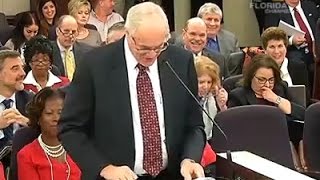 | | SENATE COMMITTEE ON REGULATED INDUSTRIES |
On January 13th, when Stargel's SB 722 marginally squeezed by the Senate Committee on Regulated Industries by a vote of 6 Yeas vs. 4 Nays, it had a sobering effect on Wood, who suddenly became more amenable to enhancing his bill�s palatability. Armed with angry emails from thousands of unit & parcel owners from across the State (including the Galt Mile), association advocates negotiated some significant changes to HB 203.
 In addition to removing the �pay at close� bear trap, Wood raised the estoppel preparation fee for a unit with no delinquencies from $200 to $250. These concessions paved the way for unanimous approval on February 18th by the House Judiciary Committee, the bill�s final Committee stop before hitting the House Floor. Ultimately, these maneuvers proved futile, as Stargel�s companion bill in the Senate was never scheduled in the Senate Committees on Judiciary or Fiscal Policy, two of its three committee stops. The death of her bill on the calendar buys a one-way ticket to the cornfield for Wood's HB 203. When Wood and Stargel whip out the same turnip at next year�s session, if they excise the provisions that unnecessarily stick it to unit owners, it may be enacted. Don�t bet on it. In addition to removing the �pay at close� bear trap, Wood raised the estoppel preparation fee for a unit with no delinquencies from $200 to $250. These concessions paved the way for unanimous approval on February 18th by the House Judiciary Committee, the bill�s final Committee stop before hitting the House Floor. Ultimately, these maneuvers proved futile, as Stargel�s companion bill in the Senate was never scheduled in the Senate Committees on Judiciary or Fiscal Policy, two of its three committee stops. The death of her bill on the calendar buys a one-way ticket to the cornfield for Wood's HB 203. When Wood and Stargel whip out the same turnip at next year�s session, if they excise the provisions that unnecessarily stick it to unit owners, it may be enacted. Don�t bet on it.
Some Survivors

A few of the surviving bills that impact Community associations include:
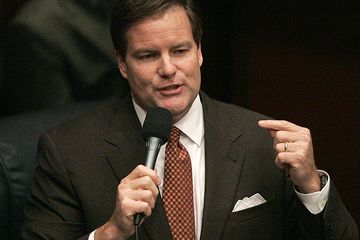 | | SENATOR AARON BEAN |
Senate Bill 184 by Senator Aaron Bean (R - Jacksonville) relating to military and veterans affairs provides that a landlord, Condominium Association, Cooperative Association or HOA requiring a prospective tenant to complete a rental application before residing in a rental unit must process such a rental application from a military service member within seven days of submission. Approval or denial of the military service member�s application must be in writing and if denied, include the reason for denial. If the landlord, Condo, Co-op or HOA fails to timely deny a rental application that complies with all the other terms of the application and lease, the rental unit must be leased to the service member.
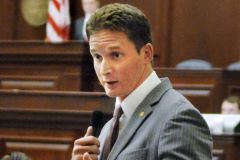 | | REPRESENTATIVE DANE EAGLE |
House Bill 535 by Representative Dane Eagle (R - Cape Coral) relates to Building Codes. Buried in sixty-six pages of other code updates, the bill amends Chapter 633.202, F.S., requiring all new and existing high rise buildings to maintain a minimum radio signal strength for fire department communications. Currently non-compliant apartment buildings are required to comply by January 1, 2025. The bill also amends Chapter 633.208 F.S., relating to Fire Safety Standards. The amendments provide that the local fire official may consider the fire safety evaluation systems found in NFPA 101A, Guide on Alternative Solutions to Life Safety, adopted by State Fire Marshal, as acceptable systems for the identification of low-cost reasonable alternatives.
 | | REPRESENTATIVE KATHLEEN PASSIDOMO |
House Bill 931 by Representative Kathleen Passidomo (R - Naples) is entitled Operations of Citizens Property Insurance Corporation. In her end-of-session summary of the legislation, Association Advocate Yeline Goin states, �Among other things, the bill changes the current depopulation procedures for personal lines residential policies (i.e., individual homeowner policies) by requiring that take-out offers be communicated by Citizens and not the take-out company. Notice of a take-out offer must include standardized information that compares the coverage and estimated premium of each take-out offer to the coverage and premium provided by Citizens and must advise policyholders that they may accept or reject any offer. In some cases, policyholders who accepted a take-out offer in the past 36 months may return to Citizens. The reforms must be in place by January 1, 2017.�
DBPR Tragicomic Relief


 | | SOUPY CONSULTS WITH DBPR |
Stirring suspicions that the Division of Florida Condominiums, Timeshares, and Mobile Homes in the Department of Business and Professional Regulations (DBPR) solicits legal guidance from Soupy Sales, it punctuated the legislative session with an enigmatic January 27, 2016 Declaratory Statement. Responding to a query about board eligibility petitioned by the Alhambra Village No. 1 Association, Inc., Division Director Kevin Stanfield parsed the Condominium Act and the association�s governing documents to determine �whether a husband and wife, as co-tenants who do not own a condominium unit� can simultaneously serve on a condominium board.
 The Florida Condominium Act � specifically Chapter 718.112(2)(d)2, F.S. - states, �In a residential condominium association of more than 10 units, or in a residential condominium association that does not include timeshare units or timeshare interests, co-owners of a unit may not serve as members of the board of directors at the same time unless they own more than one unit or unless there are not enough eligible candidates to fill the vacancies on the board at the time of the vacancy.� The Florida Condominium Act � specifically Chapter 718.112(2)(d)2, F.S. - states, �In a residential condominium association of more than 10 units, or in a residential condominium association that does not include timeshare units or timeshare interests, co-owners of a unit may not serve as members of the board of directors at the same time unless they own more than one unit or unless there are not enough eligible candidates to fill the vacancies on the board at the time of the vacancy.�
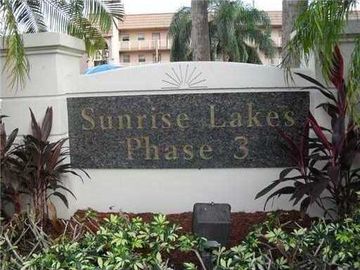 | | SUNRISE LAKES CONDMINIUM APARTMENTS PHASE III INC. |
Director Stanfield cites a previous Declaratory Statement issued to Sunrise Lakes on February 9, 2009, in which the Division upheld the statutory prohibition against co-owners simultaneously serving on a board. Stanfield notes how the Division deems the prohibition reasonable �because of the inherent propensity for the persons with joint financial interests to pursue common goals.� He included this quote because it�s followed by �This is particularly so where spouses serve on the board simultaneously.� Characterizing the practice as �an evil to be corrected,� the 2009 Statement continues �Alignment of financial interests creates an inherent risk of disproportionately affecting the balance of a board�s voting power and its ability for robust and independent debate.�
 It�s unclear why Stanfield dwells on this decision, since he follows it with �If the drafters intended to restrict co-tenants from serving on the board, such language would have been included in the Statute,� and declares �the Division will not look to the intent behind the statute,� As if delivering a punch line, Stanfield lets fly: �Ordered that absent a provision in the governing documents, husband and wife co-tenants may simultaneously serve on the board of directors of the Association. Done and ordered this 25th day of January, 2016, at Tallahassee, Leon County, Florida.� As a parting shot, gubernatorial appointee Stanfield sees no ambiguity in his decision to provide rights to husband and wife co-tenants that are denied to husband and wife co-owners. It�s unclear why Stanfield dwells on this decision, since he follows it with �If the drafters intended to restrict co-tenants from serving on the board, such language would have been included in the Statute,� and declares �the Division will not look to the intent behind the statute,� As if delivering a punch line, Stanfield lets fly: �Ordered that absent a provision in the governing documents, husband and wife co-tenants may simultaneously serve on the board of directors of the Association. Done and ordered this 25th day of January, 2016, at Tallahassee, Leon County, Florida.� As a parting shot, gubernatorial appointee Stanfield sees no ambiguity in his decision to provide rights to husband and wife co-tenants that are denied to husband and wife co-owners.
And the hits just keep on coming.


Click To Top of Page
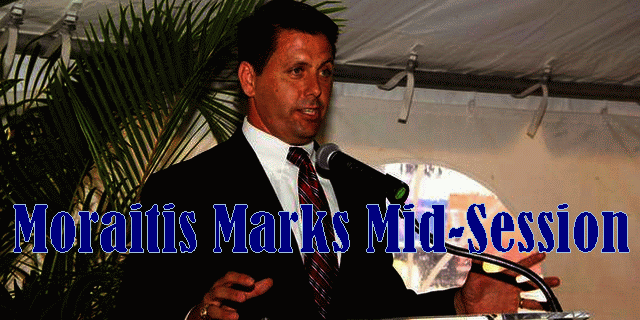

Commentary

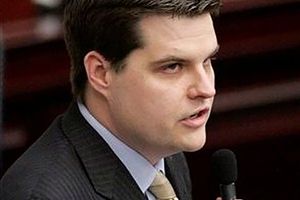 | | REPRESENTATIVE MATT GAETZ |
 | | REPRESENTATIVE MORAITIS - PORT UPGRADES |
 March 8, 2016 - In his 2016 Mid-session Legislative Update, District 93 Statehouse Representative George Moraitis reaffirms his commitment to competitively enhancing Port Everglades, applauds Statehouse efforts to bolster education, reviews appropriations to Everglades Restoration and looks at the House version of a complex $1 billion targeted tax cut nested in House Bill 7099 filed by Representative Matt Gaetz (R � Fort Walton Beach), who Chairs the House Finance and Tax Committee. Seated on the House Appropriations Committee and Vice Chair of the House Transportation & Economic Development Appropriations Subcommittee, Moraitis is uniquely placed to help develop Broward�s Transportation infrastructure. March 8, 2016 - In his 2016 Mid-session Legislative Update, District 93 Statehouse Representative George Moraitis reaffirms his commitment to competitively enhancing Port Everglades, applauds Statehouse efforts to bolster education, reviews appropriations to Everglades Restoration and looks at the House version of a complex $1 billion targeted tax cut nested in House Bill 7099 filed by Representative Matt Gaetz (R � Fort Walton Beach), who Chairs the House Finance and Tax Committee. Seated on the House Appropriations Committee and Vice Chair of the House Transportation & Economic Development Appropriations Subcommittee, Moraitis is uniquely placed to help develop Broward�s Transportation infrastructure.
Moraitis Meets Port Everglades Advocates

 Moraitis opens his message by focusing on a critically important financial opportunity that, if managed properly, will inject $billions into the local economy, funnel truckloads of tax revenue into state and regional coffers, and pluck thousands of local residents from unemployment rolls. As the reconfigured Panama Canal increasingly accommodates supersized transports, tankers and cruise ships, plummeting shipping costs will significantly alter international patterns of commerce. Port Everglades will have to compete with other East Coast and Gulf ports for an impending trade windfall projected to inflate the State treasury and enhance the local economy. Moraitis opens his message by focusing on a critically important financial opportunity that, if managed properly, will inject $billions into the local economy, funnel truckloads of tax revenue into state and regional coffers, and pluck thousands of local residents from unemployment rolls. As the reconfigured Panama Canal increasingly accommodates supersized transports, tankers and cruise ships, plummeting shipping costs will significantly alter international patterns of commerce. Port Everglades will have to compete with other East Coast and Gulf ports for an impending trade windfall projected to inflate the State treasury and enhance the local economy.
 While most of the required funding is generated by the Port (a highly profitable Broward Enterprise Fund), Moraitis has been instrumental in bagging incremental State financing to help implement the $1.6 Billion �Port Everglades Master Plan� - a short list of improvements that will enable the Port to compete for this bonanza. The three �Master Plan� projects referenced by Moraitis are the Intermodal Container Transfer Facility, which has been providing Port patrons with seamless ship-to-rail cargo capability since its completion last year; deepening and widening the entrance channel to accommodate post-Panamax oceangoing monsters; and lengthening the 900-foot deepwater Southport Turning Notch to 2400 feet, allowing for the addition of five new cargo berths along its expanded perimeter. After 16 years of Federal �Kick the Can� and Congressional gridlock, the Army Corps of Engineers Civil Works Committee finally gave the projects a green light last year. While most of the required funding is generated by the Port (a highly profitable Broward Enterprise Fund), Moraitis has been instrumental in bagging incremental State financing to help implement the $1.6 Billion �Port Everglades Master Plan� - a short list of improvements that will enable the Port to compete for this bonanza. The three �Master Plan� projects referenced by Moraitis are the Intermodal Container Transfer Facility, which has been providing Port patrons with seamless ship-to-rail cargo capability since its completion last year; deepening and widening the entrance channel to accommodate post-Panamax oceangoing monsters; and lengthening the 900-foot deepwater Southport Turning Notch to 2400 feet, allowing for the addition of five new cargo berths along its expanded perimeter. After 16 years of Federal �Kick the Can� and Congressional gridlock, the Army Corps of Engineers Civil Works Committee finally gave the projects a green light last year.
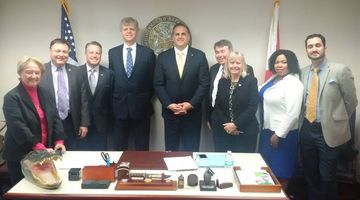 | | PORT EVERGLADES ADVOCACY TEAM |
Empaneled with Broward officials and local business leaders, the Port Everglades Advocacy Team (PEAT) travelled to Tallahassee to promote the Port�s legislative agenda on February 1 and 2, 2016. Led by District 4 Broward Commissioner Chip LaMarca, the team included Gail Bulfin (Greater Fort Lauderdale Alliance); Sam Stephenson (Port Everglades Pilots Association); Eric Roth (Premier Beverage); Bob Ledoux (FECI); Nancy Leikauf (Port Everglades Association); along with staffers from Port Everglades and the Broward Intergovernmental Affairs Division.
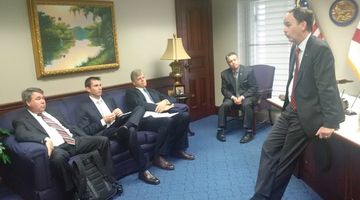 | | REP. RAY LAKE & PORT EVERGLADES ADVOCACY TEAM |
Accompanied by representatives from other Florida Ports, PEAT lobbied to increase the state�s funding allocation to the Florida Seaport and Transportation Economic Development Council (FSTED) from $15 million to $25 million. FSTED is a resource wallet for Florida Seaports. To underwrite other County infrastructure projects (like improvements to the Galt Mile stretch of A1A), they also advocated to fully fund the Florida Department of Transportation�s 5-year Work Program.
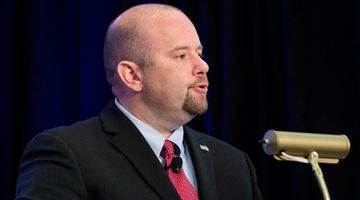 | | TRANSPORTATION SECRETARY JIM BOXOLD |
In addition to visiting Moraitis, team members met with Senate President Andy Gardiner, Department of Economic Opportunity Executive Director Cissy Proctor, Transportation Secretary Jim Boxold, Frank Collins (Deputy Chief of Staff for Governor Rick Scott), Statehouse Representatives Lake Ray and Frank Artiles, and several members of the Broward Legislative Delegation (Senators Chris Smith, Eleanor Sobel and Jeremy Ring and Representative Richard Stark).  This legislative outreach appears to be coordinated each year with the Florida Association of Counties (FAC) annual �Legislative Day� event, which followed on February 2 - 4. Last year, during a similar expedition with identical objectives, former Broward Mayor Tim Ryan and LaMarca faced a more vigorous one-day schedule, orchestrating 36 meetings with Committee Chairs, key legislators and executive branch officials. For Moraitis� mid-session message to constituents, read on... - [editor] This legislative outreach appears to be coordinated each year with the Florida Association of Counties (FAC) annual �Legislative Day� event, which followed on February 2 - 4. Last year, during a similar expedition with identical objectives, former Broward Mayor Tim Ryan and LaMarca faced a more vigorous one-day schedule, orchestrating 36 meetings with Committee Chairs, key legislators and executive branch officials. For Moraitis� mid-session message to constituents, read on... - [editor]
Moraitis 2016 Mid-Session Newsletter

|
| |

February 2016
Mid-Session Newsletter
Dear Friends and Neighbors,
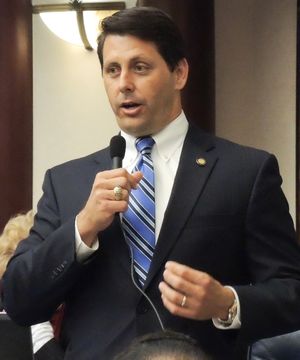 | | REPRESENTATIVE GEORGE MORAITIS |
As we pass the midpoint of the 2016 Florida Legislative Session, I am writing to give you an update on the progress of several important items to our area. This Session we are working diligently to invest in education, to improve our region's infrastructure in order to stimulate job growth, to cut taxes to return money to hard working families, and to implement a comprehensive water and conservation policy for the State.
Port Everglades Expansion
Port Everglades is working on three crucial expansion projects that will create jobs and improve the regional economy as we anticipate the completion of the Panama Canal expansion within the next year. These expansion projects will deepen and widen the channel to accommodate larger ships, add up to five berths, and create an estimated 7,000 new jobs locally and an additional 135,000 jobs statewide over the next 15 years.
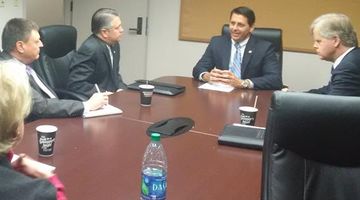 | | REP. GEORGE MORAITIS & PORT EVERGLADES ADVOCACY TEAM |
In connection with this initiative, we were honored to host the Port Everglades Action Team in Tallahassee earlier this month. Composed of leaders of the greater Fort Lauderdale business, government, and education community, the Team did an outstanding job advocating for the improvement of our Port and made an excellent impression in our state capitol.
I am proud to announce that working with the Florida Department of Transportation, Broward County, and Port Everglades, the Florida House Budget passed last week will appropriate over $12 million for these projects in this coming year. We anticipate funding a total of $122 million for Port expansion between now and 2021.
Education Budget
 The Florida House showed its commitment to providing a quality education for Florida's students by proposing to increase K-12 per student funding to its highest level ever. The proposed K-12 Education budget passed by the House last week totals $14.2 billion which is a total of $7,231.57 per student. The House budget also includes $20 million for Preeminent State Universities and $10 million for Emerging Preeminent State Universities to encourage our universities to strive for academic and research excellence and offer more high-quality educational opportunities to Floridians. The Florida House showed its commitment to providing a quality education for Florida's students by proposing to increase K-12 per student funding to its highest level ever. The proposed K-12 Education budget passed by the House last week totals $14.2 billion which is a total of $7,231.57 per student. The House budget also includes $20 million for Preeminent State Universities and $10 million for Emerging Preeminent State Universities to encourage our universities to strive for academic and research excellence and offer more high-quality educational opportunities to Floridians.
Education remains a cornerstone to a better future for the children of our state, and the Florida House budget demonstrates our commitment to the promise of an outstanding public education for our students.
Everglades Restoration
 Our state is home to many beautiful and critical natural resources that must be protected, foremost of which is the Everglades. Under the House Legacy Florida proposal, $198 million will be provided for Everglades Restoration to preserve its beauty and protect this vital environmental resource for future generations. The proposal allocates $100 million for comprehensive restoration, $32 million for the regional water quality plan and $66 million for Northern Everglades and estuaries protection. The Florida House budget puts into action the expressed desire of many Floridians to restore the Everglades and improve our environment. Our state is home to many beautiful and critical natural resources that must be protected, foremost of which is the Everglades. Under the House Legacy Florida proposal, $198 million will be provided for Everglades Restoration to preserve its beauty and protect this vital environmental resource for future generations. The proposal allocates $100 million for comprehensive restoration, $32 million for the regional water quality plan and $66 million for Northern Everglades and estuaries protection. The Florida House budget puts into action the expressed desire of many Floridians to restore the Everglades and improve our environment.
Florida House Passes $1 Billion Tax Cut
 The proposed House Budget includes a proposed $1 billion tax cut through a reduction in the commercial sales tax on leases to help small businesses, a repeal of the sales tax on manufacturing equipment to help diversify our economy, and a back-to-school sales tax holiday on books, clothing and school supplies. We are proposing relief for individuals and small businesses, while also infusing more money directly into our economy. This tax package will not only help Florida's businesses create jobs, but make Florida a more affordable state to live and raise a family. The proposed House Budget includes a proposed $1 billion tax cut through a reduction in the commercial sales tax on leases to help small businesses, a repeal of the sales tax on manufacturing equipment to help diversify our economy, and a back-to-school sales tax holiday on books, clothing and school supplies. We are proposing relief for individuals and small businesses, while also infusing more money directly into our economy. This tax package will not only help Florida's businesses create jobs, but make Florida a more affordable state to live and raise a family.
It is important that I hear from you as we prepare to finish the legislative session next month and address initiatives to benefit the citizens of our state and local community. Please contact me by phone at 954-762-3757 or by email at [email protected]. It remains my privilege to represent you in our state capitol. God bless you and the great state of Florida.
Sincerely,



State Representative - District 93
|


Click To Top of Page
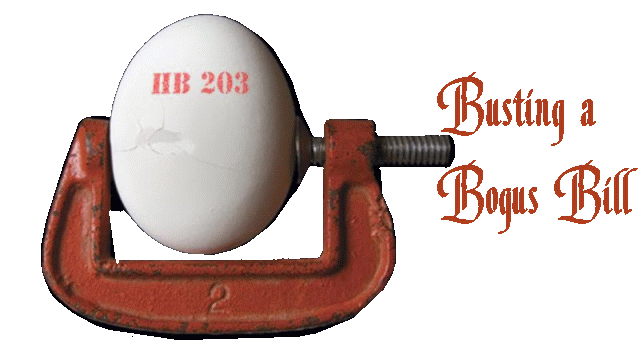

 | | STATE LEGISLATURE |
 February 10, 2016 - During last year�s legislative session in Tallahassee, two Florida Lawmakers proposed bills in the House and Senate that would enhance the profitability of their �day jobs�. HB 611 was filed by Rep. John Wood (R - Winter Haven) while companion Senate Bill 736 was filed by Sen. Kelli Stargel (R � Lakeland). Although described by Realtors as the �estoppel certificate� bills, homeowners in more than 46,000 Florida community associations knew the legislation as �The Home Tax�. February 10, 2016 - During last year�s legislative session in Tallahassee, two Florida Lawmakers proposed bills in the House and Senate that would enhance the profitability of their �day jobs�. HB 611 was filed by Rep. John Wood (R - Winter Haven) while companion Senate Bill 736 was filed by Sen. Kelli Stargel (R � Lakeland). Although described by Realtors as the �estoppel certificate� bills, homeowners in more than 46,000 Florida community associations knew the legislation as �The Home Tax�.
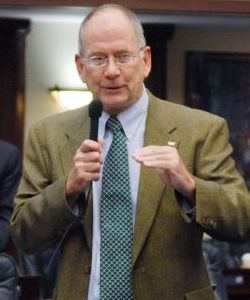 | | STATEHOUSE REPRESENTATIVE JOHN WOOD |
Owners of community association properties must provide buyers or lenders with a statement of their financial status with the association prior to selling or refinancing their homes. The statements prepared for buyers and lenders differ substantially, as lenders additionally solicit information about the association�s financial stability (i.e. insurance coverage, FHA certification status, delinquency levels, funded reserves, rental restrictions, etc.).
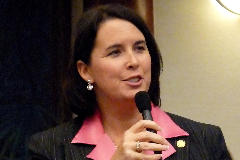 | | SENATOR KELLI STARGEL |
In Florida, unit owners are jointly and severally liable with the previous owner for debts on a condominium property. To comply with State law (s. 718.116(8), F.S.), a prospective condo buyer (usually through a realtor or title company) will request the association to verify the property�s status as of a certain date by disclosing assessments or fees due to the association, liens against the property and other outstanding debts. The resulting document is known as an estoppel certificate. Its primary purpose is to protect the association�s other members by insuring that monies due to the association are accounted for in a sale or loan agreement. Florida law allows community associations to charge a �reasonable� fee to prepare an estoppel certificate.
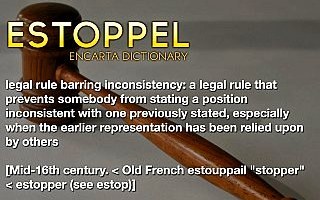 Since the estoppel certificate also protects prospective buyers against owner or realtor misrepresentations about legal claims against the property (inadvertent or deliberate), �overly aggressive� realtors view the process as a burdensome sales impediment. Drafted by realtors and financially supported by title companies (more than $2 million helped grease vetting committees), the legislation was designed to flip the script, and shift the cost of preparing estoppel letters from the realtors� paying customers (homebuyers) to the association�s members (that�s us). A statute created to protect an association�s members would now be used to bleed them. Since the estoppel certificate also protects prospective buyers against owner or realtor misrepresentations about legal claims against the property (inadvertent or deliberate), �overly aggressive� realtors view the process as a burdensome sales impediment. Drafted by realtors and financially supported by title companies (more than $2 million helped grease vetting committees), the legislation was designed to flip the script, and shift the cost of preparing estoppel letters from the realtors� paying customers (homebuyers) to the association�s members (that�s us). A statute created to protect an association�s members would now be used to bleed them.
Lawmaking for the Family Business

 Not surprisingly, Wood is a Winter Haven realtor (John Wood Realty, Inc.) and Stargel operates WWJD Properties and Rustic Properties, Polk County real estate firms she owns with her husband � Broward Circuit Court Judge John Stargel � a manager or managing member in several other real estate companies, including Green Star Properties and Polk Premier Properties. Not surprisingly, Wood is a Winter Haven realtor (John Wood Realty, Inc.) and Stargel operates WWJD Properties and Rustic Properties, Polk County real estate firms she owns with her husband � Broward Circuit Court Judge John Stargel � a manager or managing member in several other real estate companies, including Green Star Properties and Polk Premier Properties.
 Although marginally enforced, lawmakers are prohibited from filing legislation from which they, or their family members, derive a financial benefit. After filing 4 bills in 2013 that would have bolstered her income by altering the state�s property laws, when the associated press questioned Stargel about her highly publicized conflict of interest, she denied having violated the ethics rule, claiming that the bills didn�t specifically benefit her � �Nothing in this bill is specific to just me, or narrowly drafted in a way that could be construed to just me.� Notwithstanding her somewhat transparent rationalization, the State of Florida would remain oblivious to her conflict, since she omitted her real estate business interests from the financial disclosure form she submitted to the ethics commission. OOPs! Although marginally enforced, lawmakers are prohibited from filing legislation from which they, or their family members, derive a financial benefit. After filing 4 bills in 2013 that would have bolstered her income by altering the state�s property laws, when the associated press questioned Stargel about her highly publicized conflict of interest, she denied having violated the ethics rule, claiming that the bills didn�t specifically benefit her � �Nothing in this bill is specific to just me, or narrowly drafted in a way that could be construed to just me.� Notwithstanding her somewhat transparent rationalization, the State of Florida would remain oblivious to her conflict, since she omitted her real estate business interests from the financial disclosure form she submitted to the ethics commission. OOPs!
  Fortunately, the bills were abandoned on April 28, 2015, when a budgetary impasse with the Senate over Medicaid expansion prompted the House to adjourn on the 57th day of the 60-day session. Unfortunately, they�re back. Five months after the bills died on the Calendar, Wood filed House Bill 203 on September 18, 2015. Two months later, on November 3, 2015, Stargel filed a companion bill, Senate Bill 722. Fortunately, the bills were abandoned on April 28, 2015, when a budgetary impasse with the Senate over Medicaid expansion prompted the House to adjourn on the 57th day of the 60-day session. Unfortunately, they�re back. Five months after the bills died on the Calendar, Wood filed House Bill 203 on September 18, 2015. Two months later, on November 3, 2015, Stargel filed a companion bill, Senate Bill 722.
Adulterating a Statute

 Despite diligent opposition by association advocates from the Community Association Leadership Lobby (CALL), the Community Advocacy Network (CAN) and the Community Association Institute (CAI), the bills revive a wish list for Title Company lobbyists and the powerful Realtors Association � and threaten the following association bear traps: Despite diligent opposition by association advocates from the Community Association Leadership Lobby (CALL), the Community Advocacy Network (CAN) and the Community Association Institute (CAI), the bills revive a wish list for Title Company lobbyists and the powerful Realtors Association � and threaten the following association bear traps:
- The legislation will prohibit the association from being paid as a condition of delivering the estoppel certificate. Instead, the bill will require that the estoppel fee be paid to the association from the proceeds at closing.
 The current procedure, which has efficiently protected buyers, lenders and associations, is that the fee is paid at the time the work is done. If the bills become law, when a Realtor orders an estoppel certificate on behalf of a buyer who doesn�t close, the association would be barred from billing the Realtor or the title company that ordered the certificate. Since the legislation mandates that the cost should instead be assessed to the seller, associations will be forced to wait for a sale of the unit to close before they get paid for the work and fees incurred preparing estoppels. If the unit doesn�t close, and the association is unable to collect from the seller � as often occurs when distressed properties are being sold by owners already delinquent on their association obligations � the association is left holding the bag. The current procedure, which has efficiently protected buyers, lenders and associations, is that the fee is paid at the time the work is done. If the bills become law, when a Realtor orders an estoppel certificate on behalf of a buyer who doesn�t close, the association would be barred from billing the Realtor or the title company that ordered the certificate. Since the legislation mandates that the cost should instead be assessed to the seller, associations will be forced to wait for a sale of the unit to close before they get paid for the work and fees incurred preparing estoppels. If the unit doesn�t close, and the association is unable to collect from the seller � as often occurs when distressed properties are being sold by owners already delinquent on their association obligations � the association is left holding the bag.
In other words, as title companies solicit numerous estoppels without paying for them, the costs would be shifted to the association, the seller, and ultimately to the association�s members. Even if the sale closes, the bill�s restrictions would require associations to chase down and assess the former owner (good luck with that), and absorb any resulting collection costs as well..
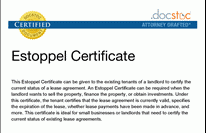 The bill provides that �An association waives any right to collect any moneys owed in excess of the amounts specified in the estoppel certificate from any person who in good faith relies on the certificate.� As currently worded, this could include the seller. The bill provides that �An association waives any right to collect any moneys owed in excess of the amounts specified in the estoppel certificate from any person who in good faith relies on the certificate.� As currently worded, this could include the seller.
Current law allows the association to collect delinquent fees from a unit owner, whether or not the debt is recorded in an estoppel certificate. If an assessment or fee is inadvertently omitted from a complex estoppel certificate, this unintentional error would magically wipe out the seller�s debt � which would then be absorbed by the association�s members.
 While buyers must rely on the estoppel letter to ascertain the fiscal condition of a unit, that�s not true for a selling unit owner, who by law, is certifiably and independently notified by the association about every maintenance assessment, unpaid fee, outstanding lien, or other association obligations. Since the unit owner does not �in good faith� rely on an estoppel certificate for information about his or her debt to the association, there is no justification for applying the bill�s dogmatic waiver language to a delinquent seller. The estoppel process was conceived as a vehicle for protecting the association�s interest in the property. Capriciously forcing a seller�s neighbors to subsidize his or her debt undermines the existing legislation�s intent. While buyers must rely on the estoppel letter to ascertain the fiscal condition of a unit, that�s not true for a selling unit owner, who by law, is certifiably and independently notified by the association about every maintenance assessment, unpaid fee, outstanding lien, or other association obligations. Since the unit owner does not �in good faith� rely on an estoppel certificate for information about his or her debt to the association, there is no justification for applying the bill�s dogmatic waiver language to a delinquent seller. The estoppel process was conceived as a vehicle for protecting the association�s interest in the property. Capriciously forcing a seller�s neighbors to subsidize his or her debt undermines the existing legislation�s intent.
The bill reduces the time that the association must comply with a request for an estoppel certificate from 15 days to 10 days. If the association fails to deliver the completed document within 10 days, the association is barred from collecting a fee for preparing the estoppel certificate.
 Preparing a complex estoppel often requires more than 10 days, especially when processing multiple past-due assessments, verifying a recently filed lien, determining the debt position of a delinquent property in default of a mortgage, or projecting expenses for a unit in litigation. If the association is even one day late in issuing the certificate, the costs and fees of generating a document to facilitate the Realtor�s closing would be borne by the association�s unit owners. Preparing a complex estoppel often requires more than 10 days, especially when processing multiple past-due assessments, verifying a recently filed lien, determining the debt position of a delinquent property in default of a mortgage, or projecting expenses for a unit in litigation. If the association is even one day late in issuing the certificate, the costs and fees of generating a document to facilitate the Realtor�s closing would be borne by the association�s unit owners.
Also, since the size and sophistication of community associations varies greatly, small associations with antiquated bookkeeping will find these difficult cases virtually impossible to complete within the abbreviated response time. As such, they will be more vulnerable to the abuse legalized by the legislation.
 The bill caps the amount that can be charged to prepare an estoppel certificate. If no delinquent amounts are owed to the association for the applicable unit, the fee is set at $200 - or $400 if delinquencies must be defined and confirmed. If asked to execute an expedited certificate in less than 3 days, another $100 can be added to the fee. The bill caps the amount that can be charged to prepare an estoppel certificate. If no delinquent amounts are owed to the association for the applicable unit, the fee is set at $200 - or $400 if delinquencies must be defined and confirmed. If asked to execute an expedited certificate in less than 3 days, another $100 can be added to the fee.
Fashioning an estoppel letter for a unit that isn�t awash in debt will typically cost less than $400. However, when the unit is rife with delinquencies, burdened with multiple liens or entangled in litigation, the complex estoppels will not only take longer to prepare than allowed by the 10-day deadline, they will cost the association more than the bills� maximum amount recoverable at closing. When the cost of preparing an estoppel is greater than the amount provided for in the bill, the difference will be force-fed to the association�s unit owners.
Blasting the Home Tax

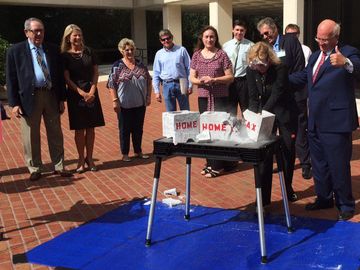 | | HOUSE MEMBERS DEMONSTRATE AGAINST BILLS OUTSIDE THE CAPITOL |
The sponsors had an opportunity to file legislation to help codify a confusing process for their home buying clients. Instead, realtors crafted a vehicle for transferring a business expense to community association homeowners. If a realtor�s client chooses not to close on an association property or an association delivers an estoppel one hour after the deadline, the bill mandates the same consequence. The association must provide the Title Company with a freebie. Not exactly a beacon of consumer protection.
On November 2, 2015, a group of House members and community association officials staged a demonstration outside the Capitol to register their opposition to the bills, and proceeded to smash a brick adorned with the words �Home Tax� Joined by Rep. Heather Fitzenhagen, Rep. Debbie Mayfield, and Rep. Ray Pilon (a Realtor and HOA resident), Rep. Dennis Baxley said, �Any time you are taking money from homeowners, it�s a tax hike.�
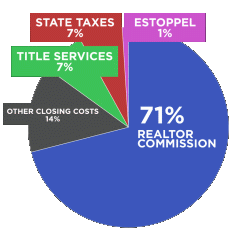
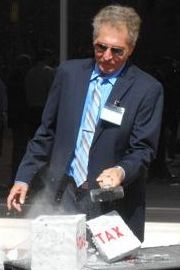 | | KESSELBACH HITS HOME TAX |
Calling the bills a ripoff, President Roger Kesselbach of the Space Coast Communities Association � which represents more than 20,000 residential units and their owners in Indian River, St. Lucie, Brevard, Volusia and Orange counties � refuted contentions by realtor lobbyists that associations unnecessarily increase closing costs, explaining �Title companies and real estate agents, who together already make up nearly 80 percent of all real estate closing costs, while estoppel fees account for just 1 percent.� Kesselbach added �And if this Home Tax passes, they will take even more of our hard-earned money.�
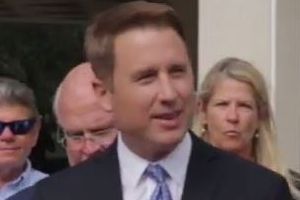 | | CEOMC DIRECTOR MARK ANDERSON |
 Title Association lobbyists also claim the bills were filed in response to consumer complaints. Manager�s Association Executive Director Mark Anderson observed, �Out of 340,000 real estate transactions last year in Florida, there was a grand total of ZERO complaints to the state regulatory body in charge of addressing these types of issues (The Department of Business and Professional Regulation). Doesn�t mean there aren�t bad actors out there, but price-fixing and punishing already struggling homeowners is clearly not the answer and that�s what this bill does.� Title Association lobbyists also claim the bills were filed in response to consumer complaints. Manager�s Association Executive Director Mark Anderson observed, �Out of 340,000 real estate transactions last year in Florida, there was a grand total of ZERO complaints to the state regulatory body in charge of addressing these types of issues (The Department of Business and Professional Regulation). Doesn�t mean there aren�t bad actors out there, but price-fixing and punishing already struggling homeowners is clearly not the answer and that�s what this bill does.�
Navigating a Tallahassee Tar Pit

 | | TRAVIS MOORE |
 | | YELINE GOIN |
The House Committees chosen to review Wood�s HB 203 are the Civil Justice Subcommittee, the Business & Professions Subcommittee and the Judiciary Committee. It flew through Civil Justice by a vote of 11 Yeas vs. 2 Nays on November 3, 2015. After some modifications, it aced Business & Professions Subcommittee on February 2nd by a vote of 13 Yeas vs. 0 Nays before being referred to Judiciary. In the Senate, Stargel�s SB 722 was referred to the Committee on Regulated Industries, the Committee on Judiciary and the Committee on Fiscal Policy. After squeezing past Regulated Industries on January 13th by a vote of 6 Yeas vs. 4 Nays, the bill was sent to Judiciary.
 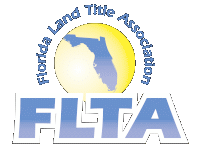 While testifying against the bills, Travis Moore of the Community Association Institute (CAI), Yeline Goin of the Community Association Leadership Lobby (CALL), and other community association advocates are bumping heads with Title Company lobbyists and the powerful Realtors Association. Although the advocates are chipping away at the legislation�s most egregious provisions, they need help neutralizing the cash liberally distributed to key committee members by their opponents. It�s no coincidence that Stargel is a member of all three Senate Committees �chosen� to review her bill, while Wood sits on two of the three House Committees vetting HB 203. While testifying against the bills, Travis Moore of the Community Association Institute (CAI), Yeline Goin of the Community Association Leadership Lobby (CALL), and other community association advocates are bumping heads with Title Company lobbyists and the powerful Realtors Association. Although the advocates are chipping away at the legislation�s most egregious provisions, they need help neutralizing the cash liberally distributed to key committee members by their opponents. It�s no coincidence that Stargel is a member of all three Senate Committees �chosen� to review her bill, while Wood sits on two of the three House Committees vetting HB 203.
  A petition opposing the bills is being circulated by the Community Advocacy Network (CAN) and the Community Association Institute (CAI). Entitled �Smash the Home Tax�, it enumerates the bills� potentially adverse impacts on community associations. Decrying how the legislation would force homeowners to subsidize someone else�s new home purchase in their community; CAN association advocates estimate that the bills would �raise association fees across the state anywhere from 10 percent to 20 percent � and in some cases upwards of 30 percent.� A petition opposing the bills is being circulated by the Community Advocacy Network (CAN) and the Community Association Institute (CAI). Entitled �Smash the Home Tax�, it enumerates the bills� potentially adverse impacts on community associations. Decrying how the legislation would force homeowners to subsidize someone else�s new home purchase in their community; CAN association advocates estimate that the bills would �raise association fees across the state anywhere from 10 percent to 20 percent � and in some cases upwards of 30 percent.�
 Unless you don�t mind subsidizing realtors� income with a new line item in the association budget, you might consider weighing in against the bills� skewed provisions and their sponsors� nest-feathering agenda. Click Here for information about the CAN Petition and Click Here to the signing page. Altogether, it will take you roughly thirty seconds to help squash this wallet virus � and it�s easier than sending dozens of emails to lawmakers. TRY IT, you'll sleep better!!! Unless you don�t mind subsidizing realtors� income with a new line item in the association budget, you might consider weighing in against the bills� skewed provisions and their sponsors� nest-feathering agenda. Click Here for information about the CAN Petition and Click Here to the signing page. Altogether, it will take you roughly thirty seconds to help squash this wallet virus � and it�s easier than sending dozens of emails to lawmakers. TRY IT, you'll sleep better!!!
That said, if you prefer getting into this up to your knuckles, below find the email addresses for the Officers and members of the House Judiciary Committee, the next and last stop in the House of Representatives before its sent to the floor. Also available is the contact info for the Senate Committee on Judiciary and the Senate Committee on Fiscal Policy - the two remaining vetting committees in the Senate. Association advocates have informed us that we may soon see some improvement in the House Bill. You can help with that!
Contact Info

House Judiciary Committee: Web Page
House Judiciary Committee Chair Charles McBurney (R) - Web Page; Tallahassee Phone: (850) 717-5016, District phone: (904) 359-6090;
Email: [email protected]
House Judiciary Committee Vice Chair Kathleen Passidomo (R) - Web Page; Tallahassee Phone: (850) 717-5106, District phone: (239) 417-6200;
Email: [email protected]
House Judiciary Committee Democtatic Ranking Member Dave Kerner (D) - Web Page; Tallahassee Phone: (850) 717-5087, District phone: (561) 641-3406;
Email: [email protected]
Members:
-
 Burton, Colleen [R] [email protected] Burton, Colleen [R] [email protected]
- Dudley, Dwight [D] [email protected]
- Edwards, Katie A. [D] [email protected]
- Fant, Jay [R] [email protected]
- Gonzalez, Julio [R] [email protected]
- Harrell, Gayle B. [R] [email protected]
- Hudson, Matt [R] [email protected]
- Metz, Larry [R] [email protected]
- Moskowitz, Jared Evan [D] [email protected]
- Plakon, Scott [R] [email protected]
- Rehwinkel Vasilinda, Michelle [D] [email protected]
- Rodr�guez, Jos� Javier [D] [email protected]
- Stone, Charlie [R] [email protected]
- Trujillo, Carlos [R] [email protected]
- Wood, John [R] [email protected]
- To send one email that reaches every member of the House Judiciary Committee, copy and paste the below email addresses into the address window (To:) of your email program, let them know what you think, and hit send:
 [email protected]; [email protected]; [email protected]; [email protected]; [email protected]; [email protected]; [email protected]; [email protected]; [email protected]; [email protected]; [email protected]; [email protected]; [email protected]; [email protected]; [email protected]; [email protected]; [email protected]; [email protected] [email protected]; [email protected]; [email protected]; [email protected]; [email protected]; [email protected]; [email protected]; [email protected]; [email protected]; [email protected]; [email protected]; [email protected]; [email protected]; [email protected]; [email protected]; [email protected]; [email protected]; [email protected]
Senate Committee on Judiciary: Web Page
Senate Committee on Judiciary Chair Senator Miguel Diaz de la Portilla (R) - Web Page; Tallahassee Phone: 850) 487-5040, District phone: (305) 643-7200;
Email: [email protected]
Senate Committee on Judiciary Vice Chair Senator Jeremy Ring (D) - Web Page; Tallahassee Phone: (850) 487-5029, District phone: (954) 917-1392;
Email: [email protected]
Senate Committee on Fiscal Policy: Web Page
Senate Committee on Fiscal Policy Chair Senator Anitere Flores (R) - Web Page; Tallahassee Phone: (850) 487-5037, District phone: (305) 270-6550;
Email: [email protected]
Senate Committee on Fiscal Policy Vice Chair Senator Rob Bradley (R) - Web Page; Tallahassee Phone: (850) 487-5007, District phone: (904) 278-2085;
Email: [email protected]


Click To Top of Page
To GMCA HOME
To ISSUES INDEX
To TALLAHASSEE POLITICS PAGE
To TALLAHASSEE ARCHIVE
To TALLAHASSEE ARCHIVE - 2017
To TALLAHASSEE ARCHIVE - 2016
To TALLAHASSEE ARCHIVE - 2015
To TALLAHASSEE ARCHIVE - 2014
To TALLAHASSEE ARCHIVE - 2013
To TALLAHASSEE ARCHIVE - 2012
To TALLAHASSEE ARCHIVE - 2011
To TALLAHASSEE ARCHIVE - 2010
To TALLAHASSEE ARCHIVE - 2009
To TALLAHASSEE ARCHIVE - 2008
To TALLAHASSEE ARCHIVE - 2007
To TALLAHASSEE ARCHIVE - 2006
To TALLAHASSEE ARCHIVE - 2005
To TALLAHASSEE ARCHIVE - 2004
To TALLAHASSEE ARCHIVE - 2003
To FIRE SAFETY PAGE
To SHORE PROTECTION PAGE
To EMERGENCY ROOM PAGE
To CITY OF FORT LAUDERDALE PAGE
To FORT LAUDERDALE BUDGET CRISIS PAGE
To BROWARD COUNTY PAGE
To BROWARD COUNTY PROPERTY APPRAISER PAGE
To AUTOMATED EXTERNAL DEFIBRILLATOR PAGE
To CALYPSO GASWORKS PAGE
To 32nd STREET ALLEY PAGE
To FLPD CRIME STATISTICS
To MAIN PAGE
To GOVERNANCE
To REPORT CARD
To LAWS & STATUTES
To GOVERNMENT LINKS
Click To Top of Page
|

